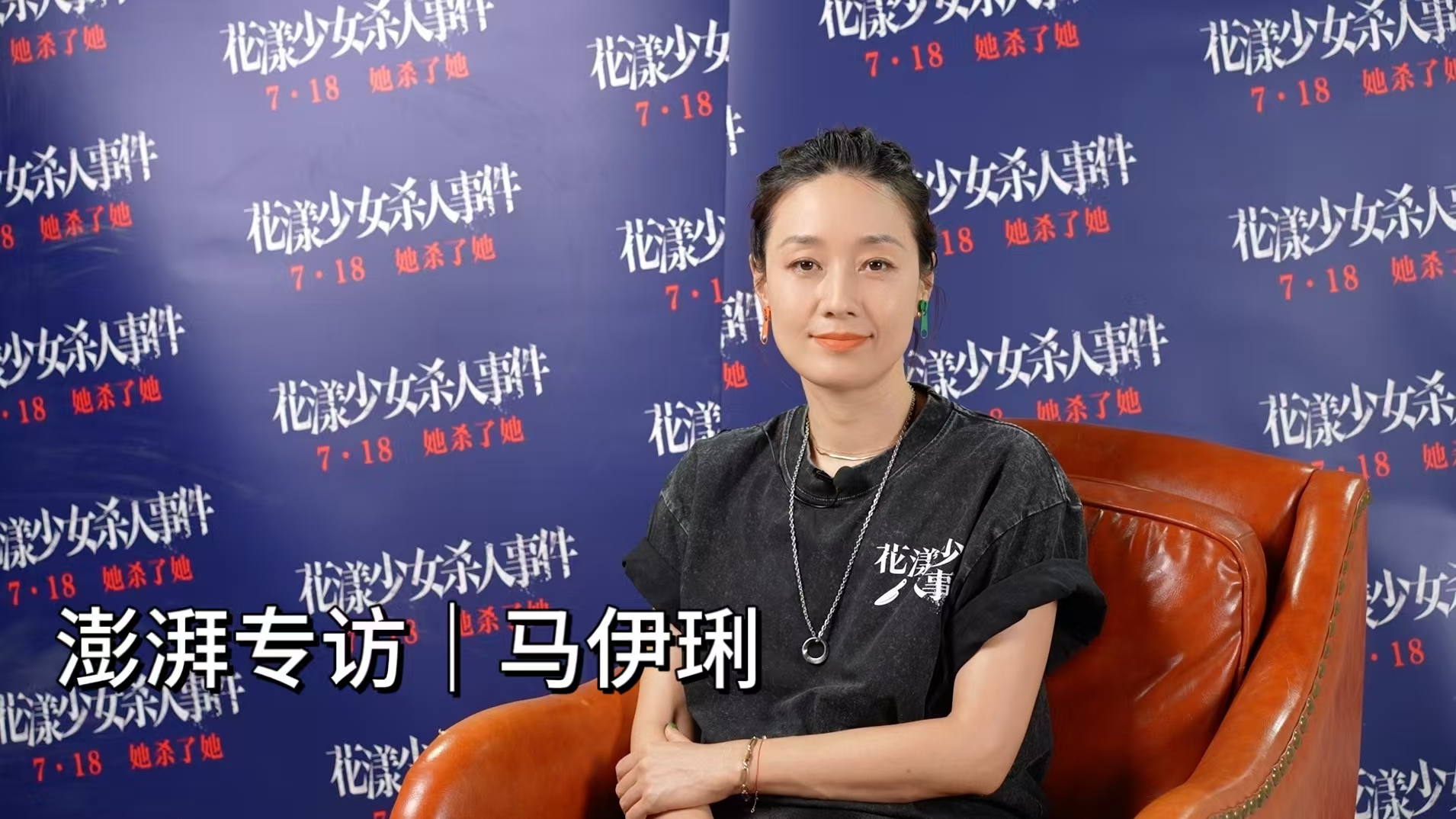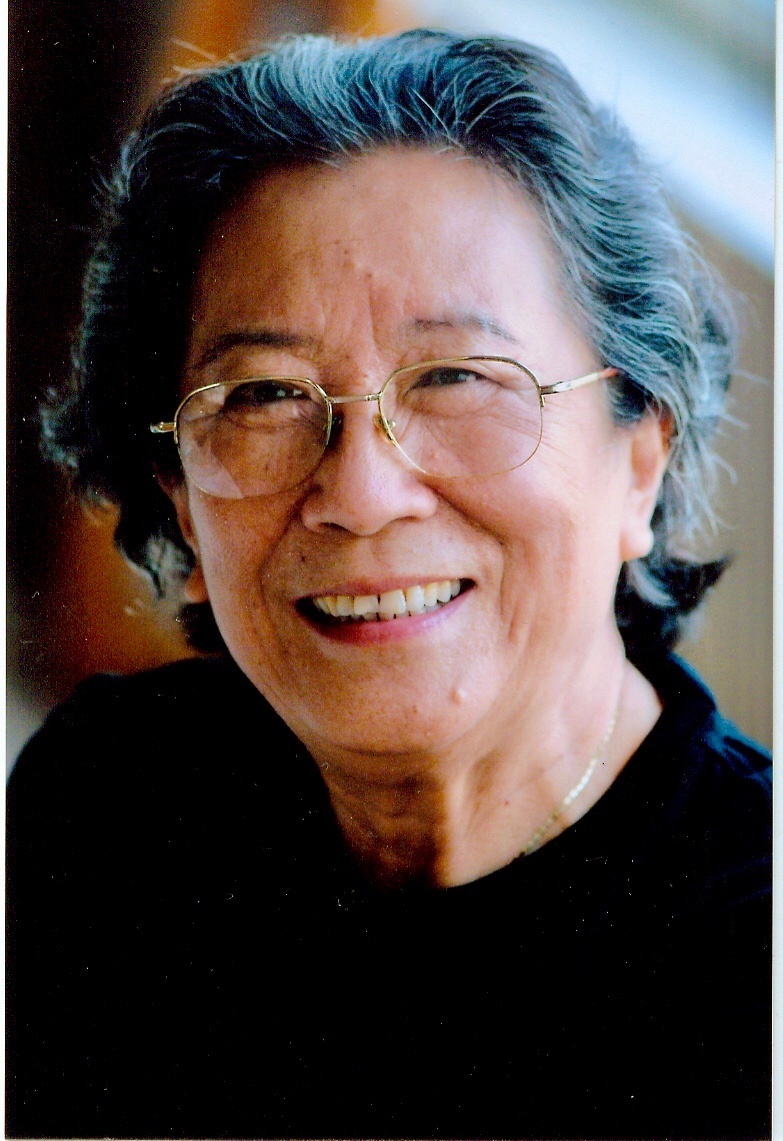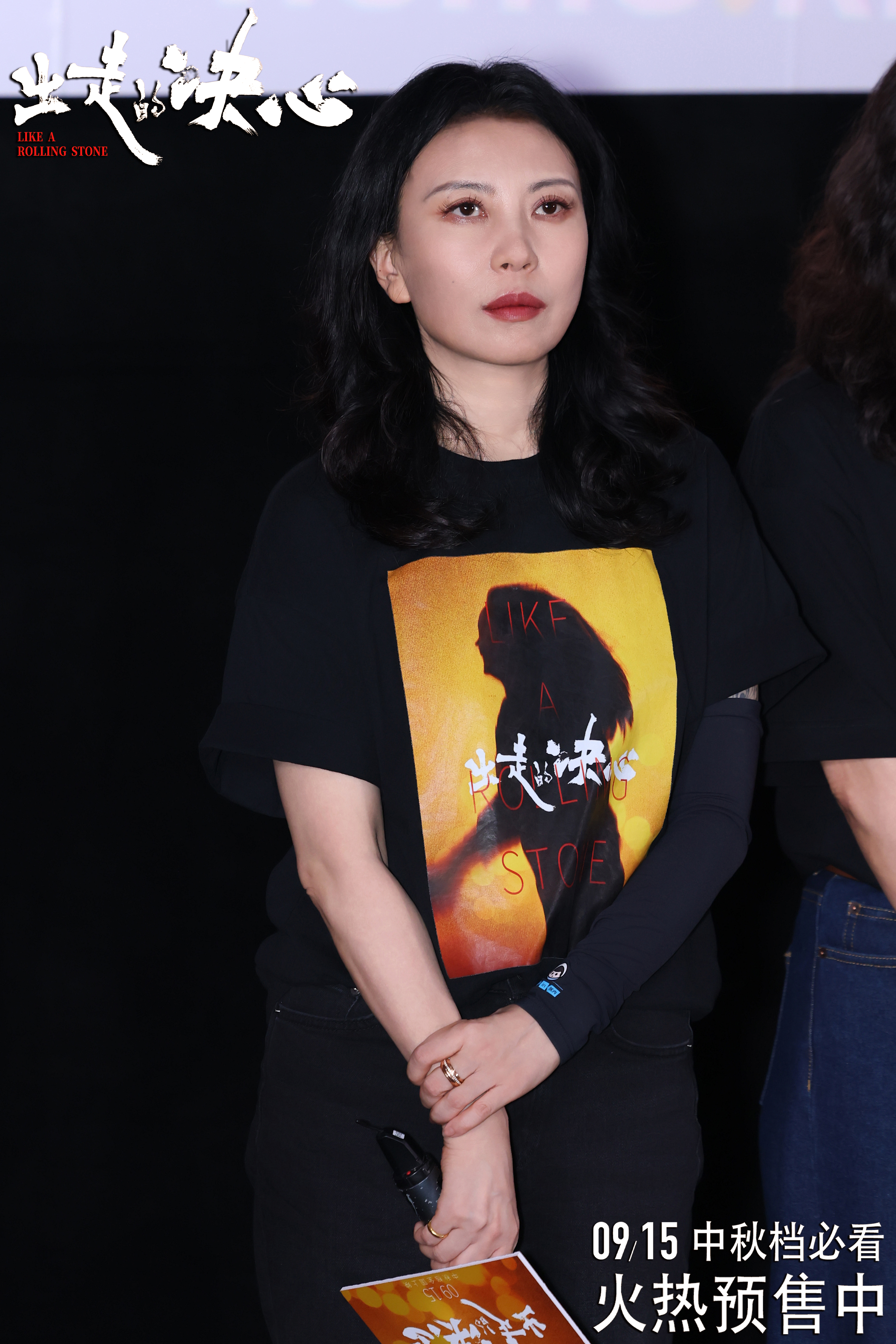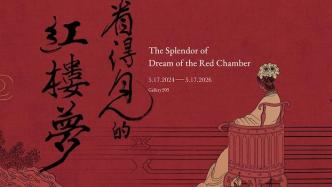
"A Dream of Red Mansions" is about reminiscing about the aristocratic families in the Qing Dynasty, their rich and prosperous past. The novel is filled with the author Cao Xueqin's (approximately 1716-1763) obsession with and looking back on the past, as well as his sighs about the decline of prosperity and the decline of his family.
"Objects" are ubiquitous in the book "A Dream of Red Mansions". The author specially uses many concrete objects, such as purses, jewelry, Buddha's hands, etc., to outline the outlines and temperaments of the characters, and even serve as symbols to connect the plot of the story.
The Paper has learned that on May 17, "Visible Dream of Red Mansions" was put on display at the North Campus of the National Palace Museum in Taipei. The exhibition is titled "Dream of Red Mansions" and is based on collections of the National Palace Museum, Taipei Library and National Taiwan University Library. , reading the novel with "objects" will lead us to see that passing time, and see the beauty and sadness of "A Dream of Red Mansions".
According to the Taipei National Palace Museum, this exhibition unfolds on three axes. 1. "Elegance and Appreciation": The charm of "A Dream of Red Mansions" lies in the exquisite material culture of the aristocratic class and the wealth and splendor reflected in the life experience of the author who was born in a weaving family in Jiangning; 2. "Exotic objects" : Selecting imported products from foreign countries in the book, prompting the author to use them to set off the fashion of the Jia family, and prompting the trend of imitation due to the popularity of "foreign goods" in the palace of the author's time; 3. "A Dream": the characters in the manual Based on the use and description of related objects, different characters and metaphors are created, and the short but brilliant life posture of women is created, which makes people feel pity and reluctance.

"Visible Dream of Red Mansions" poster
"A Dream of Red Mansions" is inseparable from "emotion", family affection, love, friendship, and the relationship between master and servant. The interaction between love and "people" is closely woven. Through the embellishment of "objects", people appear three-dimensional and warm. "Objects" give the novel a picture and become a visible "Dream of Red Mansions".
Elegant and impressive
"Dream of Red Mansions" begins with a stone, a stone left by Nuwa to mend the sky, which transformed into the world, was born in Jia's house, and became Jia Baoyu, who was born with a jade in his head. "Jade, the beauty of stone." is closely related to noble status, gentleman's moral character, etc. Cao Xueqin, who was born in the third generation of the Cao family that replaced Jiangning's weaving industry, uses the "Abandoned Sky Mending Stone" as a metaphor for how she and the male protagonist are "hopeless for the country and their family" in the face of the predicament of a century-old decline of the nobility. Therefore, he skillfully blends the prosperous past events he cherishes in his heart with imagination and fiction into the novel. On the one hand, it shows the aesthetic spirit and taste of the aristocracy, on the other hand, it achieves the last self-consolation in life.
A clan of poetry, etiquette and hairpins——Cao family and Jiangning weaving
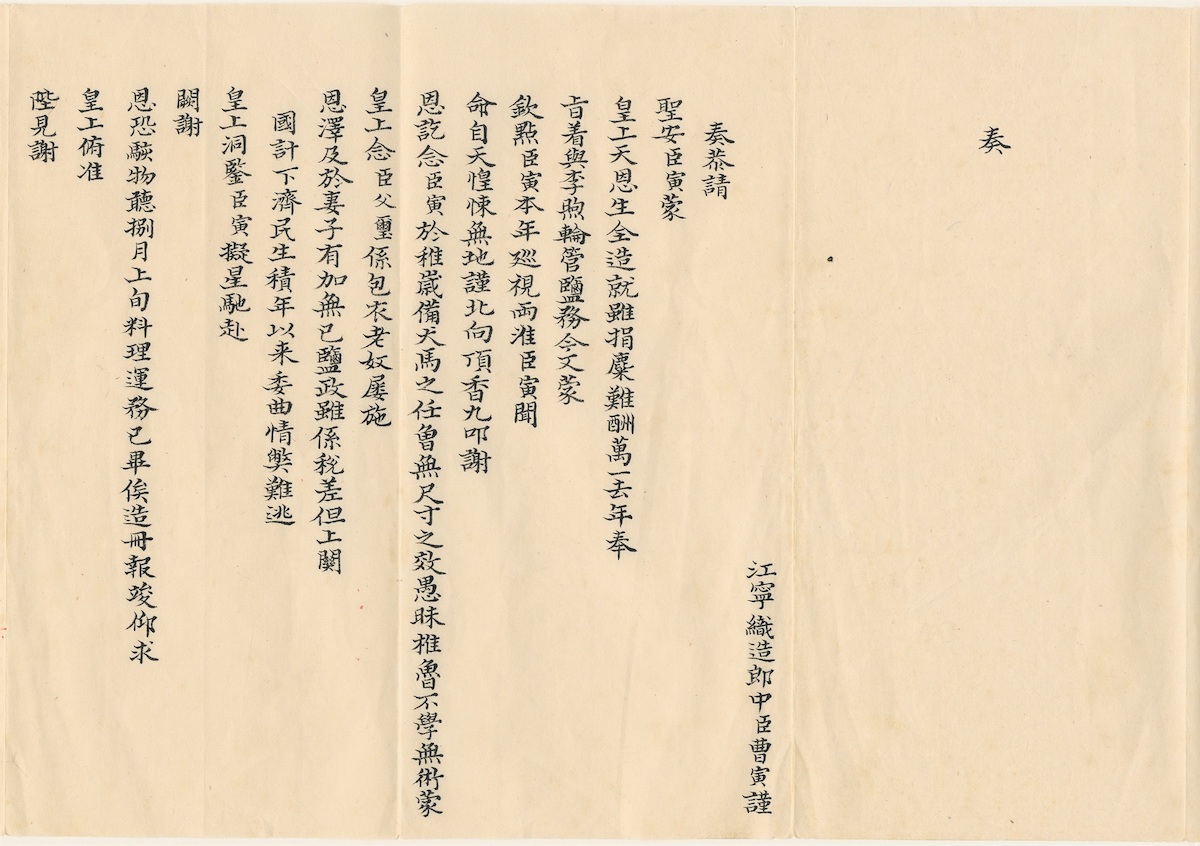
Respectfully greeting the Holy Ann and please go to Beijing to see the Jiangning weaving doctor Cao Yin. Memorial of the 43rd year of Emperor Kangxi of the Qing Dynasty (1704), July 29, length 20.5 cm, width 48.2 cm
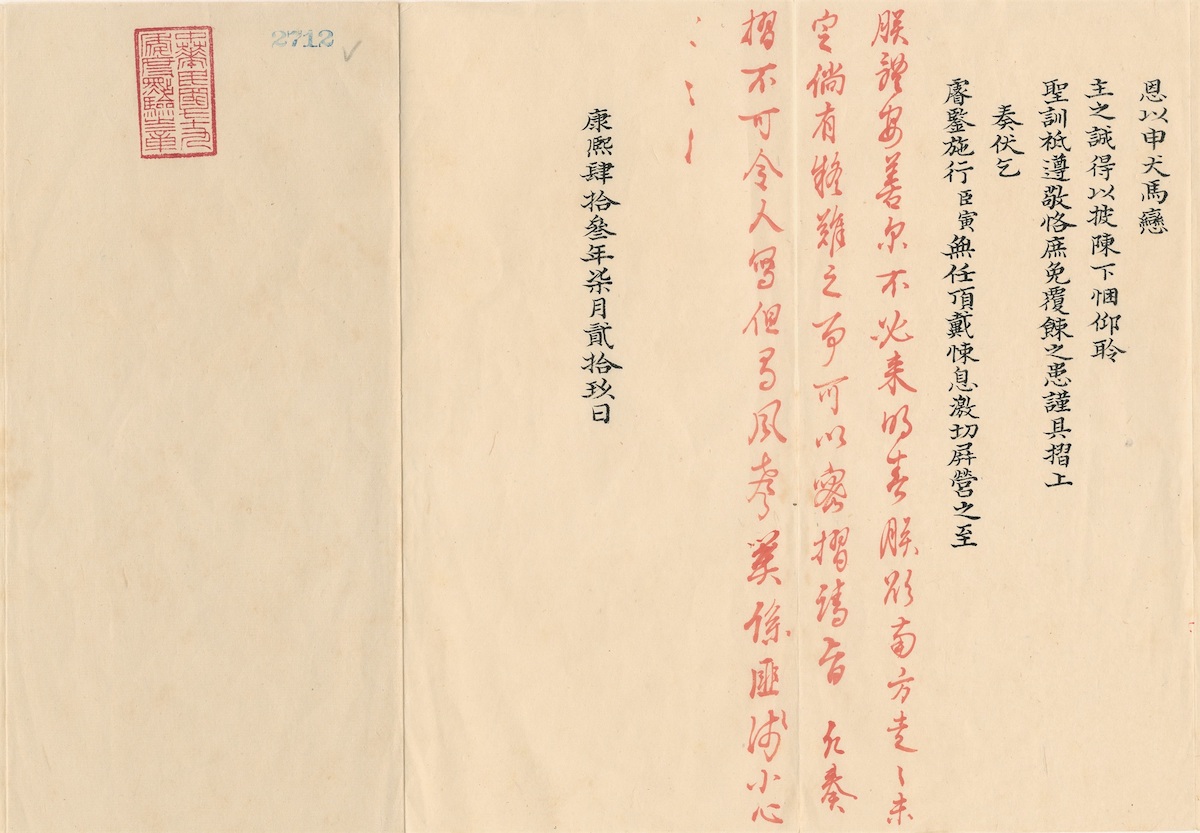
Respectfully greeting the Holy Ann and please go to Beijing to see the Jiangning weaving doctor Cao Yin. Memorial of the 43rd year of Emperor Kangxi of the Qing Dynasty (1704), July 29, length 20.5 cm, width 48.2 cm
The clan of poetry, etiquette and hairpins refers to aristocrats who pursue etiquette and have read poetry and practiced etiquette for generations. Cao Xueqin grew up in such an aristocratic family. Grandfather Cao Yin was good at poetry writing and editing, and was commissioned to compile "Yu Ding Complete Poems of the Tang Dynasty". Beginning with great-grandfather Cao Xi, three and four generations of the Cao family have held the position of weaver in Jiangning - an important position held by the emperor's cronies, responsible for weaving, comprador silk fabrics and various supplies required by the royal family, such as the Sutra Sutra Sutra and Clothes. Such a special life experience infected Cao Xueqin, which is reflected in the beautiful poems, lyrics and detailed descriptions of exquisite objects in "A Dream of Red Mansions".
Cao Yin once served as a weaver in Suzhou and Jiangning, and also inspected the salt administration of Huaihe and Huaihe. He was highly regarded and was a favorite of Emperor Kangxi. In addition to being a comprador and making things necessary for the palace, he was also Emperor Kangxi's eyes and ears in the south. If you have something to do, you can ask for an order secretly. "Be careful! Be careful!" He said it so vigilantly and privately that he could not let others know.
A paper full of absurdities——Cao Xueqin and Dream of Red Mansions
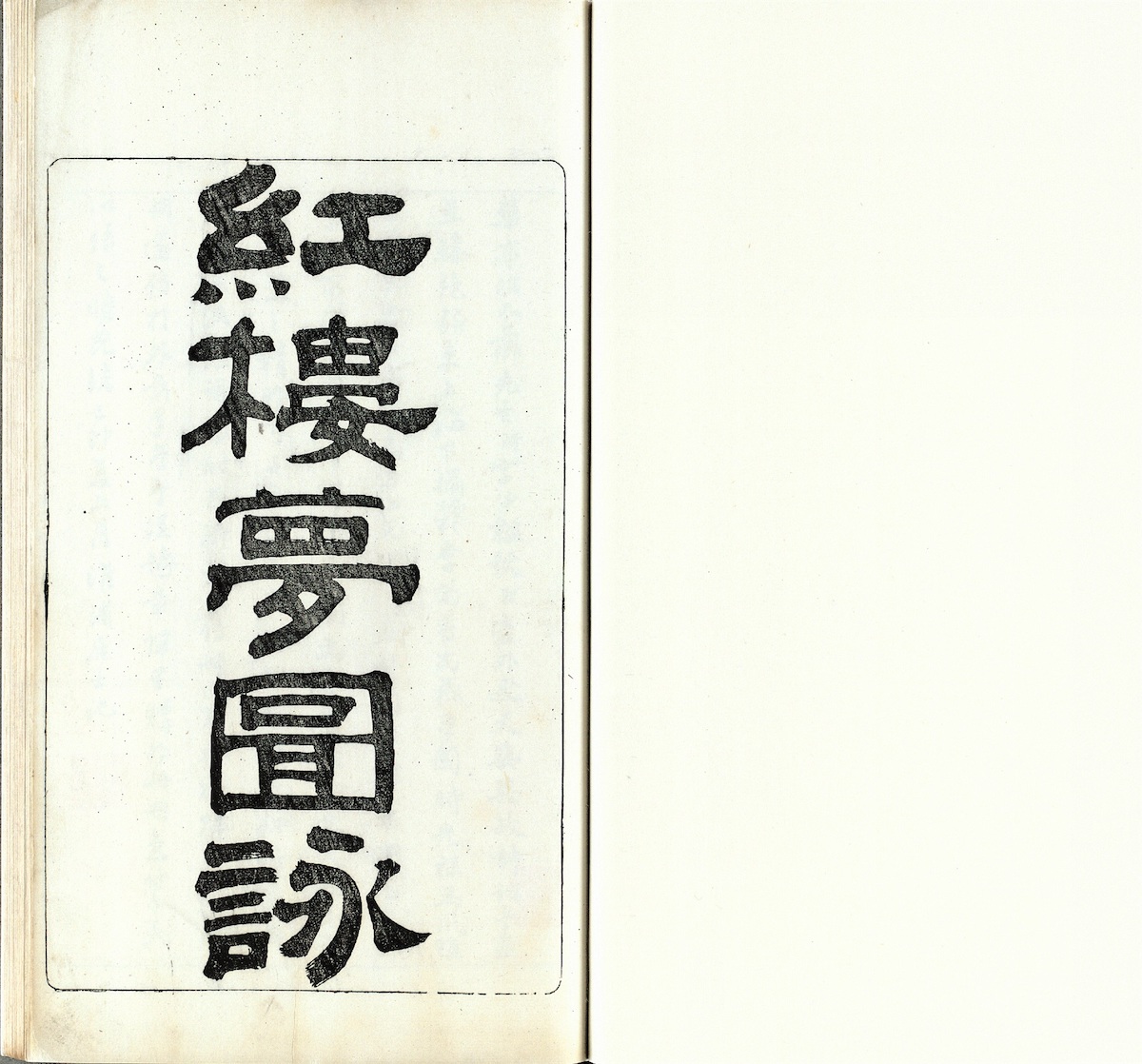
A Dream of Red Mansions Illustrated by Qi Qi, a picture book published in the fifth year of the reign of Emperor Guangxu of the Qing Dynasty (1879), 22.5 cm high and 15 cm wide
There are many unsolvable mysteries about Cao Xueqin. The Cao family was destroyed, and Cao Xueqin returned to Beijing in grief. On the twenty-seventh year of Qianlong's reign (1762), "On Renwu New Year's Eve, before the book was completed, Qin passed away in tears." For him, he "died before he was fifty." In his short life, the knowledge and understanding of his unfinished "Dream of Red Mansions" was often fragmented and incomplete, as if his existence itself was a mystery. "Dream of Red Mansions" is not finished yet, which does not diminish its charm. Perhaps because it was not finished, many versions, comments and even pictures were produced.
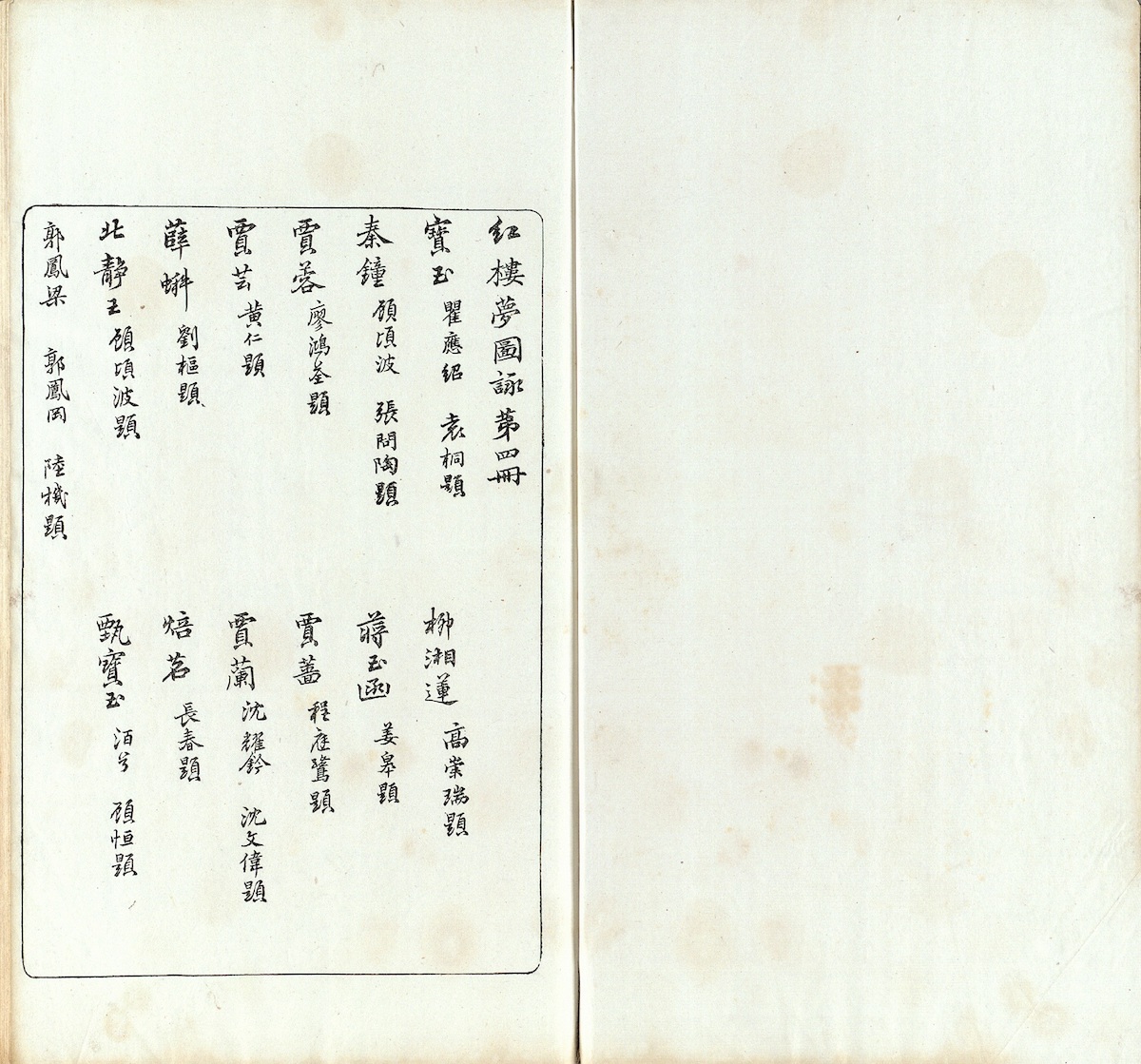
A Dream of Red Mansions Illustrated by Qi Qi, a picture book published in the fifth year of the reign of Emperor Guangxu of the Qing Dynasty (1879), 22.5 cm high and 15 cm wide
Since the publication of "A Dream of Red Mansions", works depicting images of characters and specific scenes in the book have appeared one after another. Picture chant, one picture, one chant, reverses the role of images as mere illustrations. The version painted by the artist Qi Qi is the earliest "Dream of Red Mansions" picture album. The strokes are slender and the picture is ethereal, showing a poetic aesthetic style.
Concubine Yuan’s Prospect—The Construction of the Grand View Garden
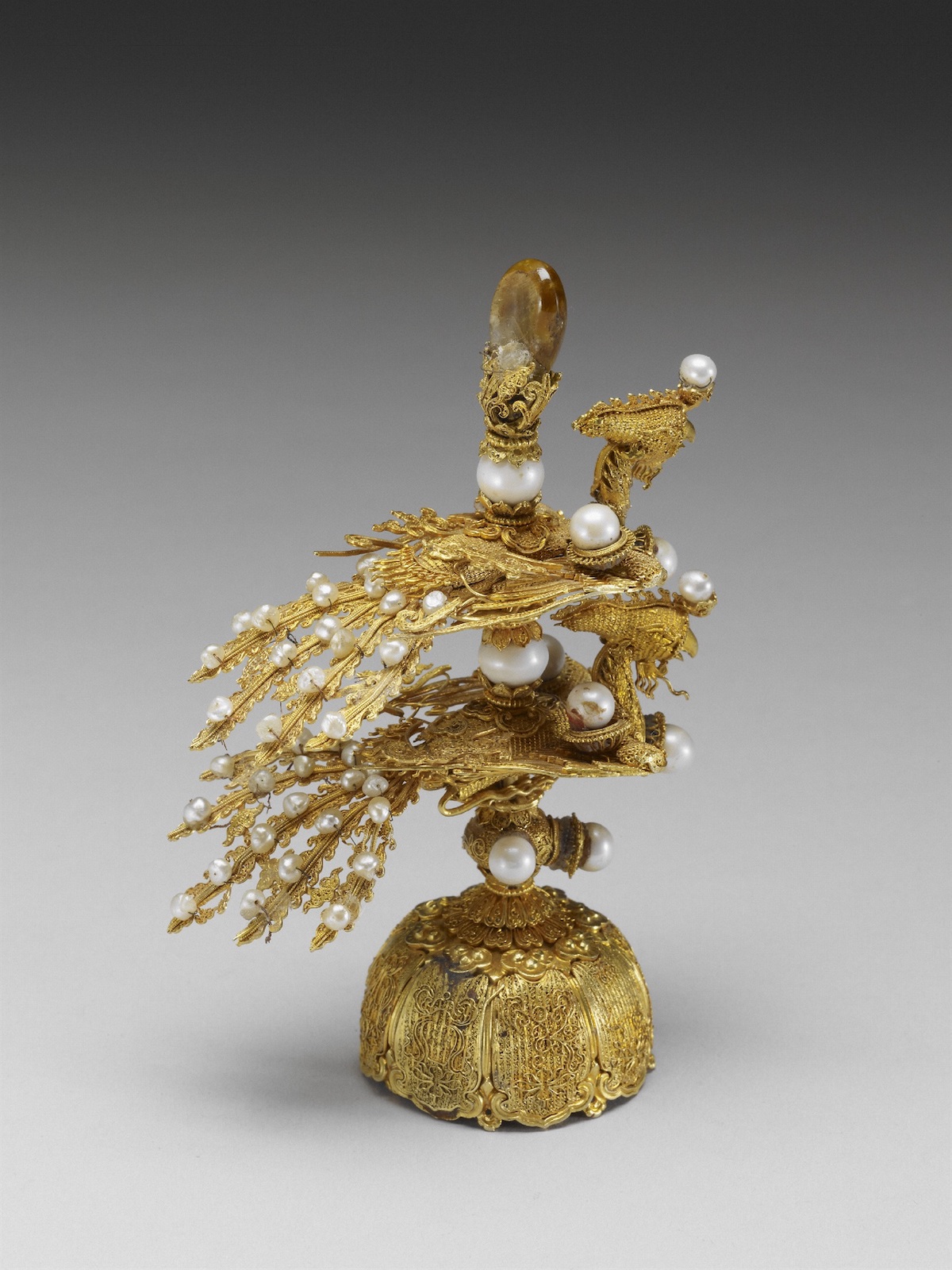
Qing Dynasty Qianlong gold inlaid with East beads and cat's eye stone concubine crown crown, length 16 cm, seat diameter 4.8 cm
Concubine Yuan, whose real name is Jia Yuanchun, is Jia Baoyu's eldest sister. She entered the palace when she was thirteen or fourteen years old, and was named a noble concubine in the later Jin Dynasty, which brought the glory of Jia's house to its peak; to visit relatives, concubines in the palace were allowed to return home and visit their parents or other respected relatives to fulfill their filial piety. In order to welcome the return of Concubine Yuan, the Jia Mansion specially built the Grand View Garden, a provincial residence. The Grand View Garden was a paradise where Concubine Yuan lost her youth and briefly reunited with her family. It was also a paradise where Jia Baoyu and her golden hairpins, under the protection of their power, seemed to be an independent youth paradise. It was also a lost paradise where Cao Xueqin remembered the past and lost prosperity. .
Depending on the status of the crown, the number of layers, Dongzhu (pearls produced in Northeast China), the number of pearls and gemstones, etc., all have corresponding regulations. The two-layer silk golden phoenix is connected and embellished with evenly rounded east beads, a total of eleven. The head, belly and tail feathers of the phoenix are decorated with irregular small pearls. There is a brown cat's eye stone on the top. It should belong to the imperial crown of concubines.
A ray of fragrance - three things about the stove and bottle
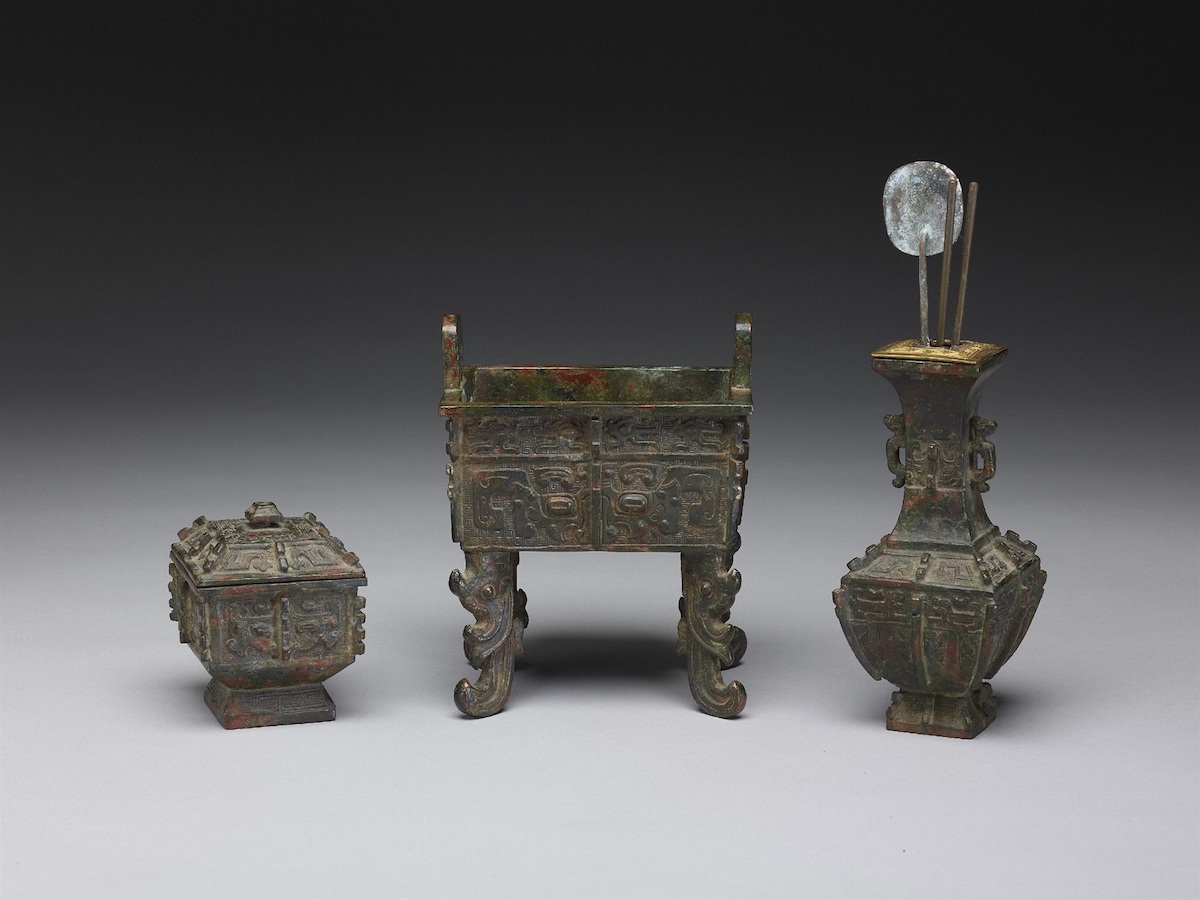
Bronze furnace, bottle and box with Kui patterns from the late Ming Dynasty to the Qing Dynasty. The furnace is 15 cm high. The bottle is 13.8 cm high. The box is 7.9 cm high.
"Dream of Red Mansions" always has a faint fragrance. Incense is burned on important ceremonial occasions, as well as in daily life when sitting or lying down. When the imperial concubine Yuan came to visit her relatives, she burned the incense of lilies on a cauldron in the Grand View Garden; at the Jia family banquet, three stoves and vases were placed on the table, and the royal family was given incense of lilies. The three things of the stove and vase are composed of an incense burner, an incense box and a chopstick vase. The stove is used to burn incense, the box is used to store incense, and the bottle is used to store chopsticks and spoons. The furnace is placed in the middle, and the boxes and bottles are placed on the sides, which shows that the furnace is the protagonist. The incense burner mentioned in the novel - Wenwang Ding, originated from the sacrificial vessel used by Duke Zhou to worship King Wen of Zhou Dynasty. It was imitated many times during the Ming and Qing Dynasties. It is an elegant antique vessel and should be appreciated in the living room.
The King Wen's tripod in the novel appears on the table in the side room where Jia Baoyu's mother, Mrs. Wang, the powerful woman in the Rongguo Mansion, sits and enjoys a banquet. Next to the tripod is a box of spoons, chopsticks and incense. There are three stoves and bottles in front of me. The incense burner imitates Wen Wang's tripod and the incense box imitates Yi, which is a set with the square vase. They are all ridged, decorated with thunder patterns as the ground, and are decorated with relief animal face patterns, Kui patterns, etc. Wenwang's tripod is an excellent instrument for burning incense. When the "Eight Notes of Zunsheng", an appreciation book of the late Ming Dynasty, mentioned the selection of ancient bronze incense burners, it rated the "Feilongjiao Wenwang's tripod" as "highly prized", which influenced incense burners at that time and even for future generations. of production. Antique incense burners made of various materials have emerged, and even the inscription "Lu Gong Zuwen Wang Zunyi" is presented.
Taking the Song Dynasty as the Rhyme——Ru Kiln and Ding Kiln
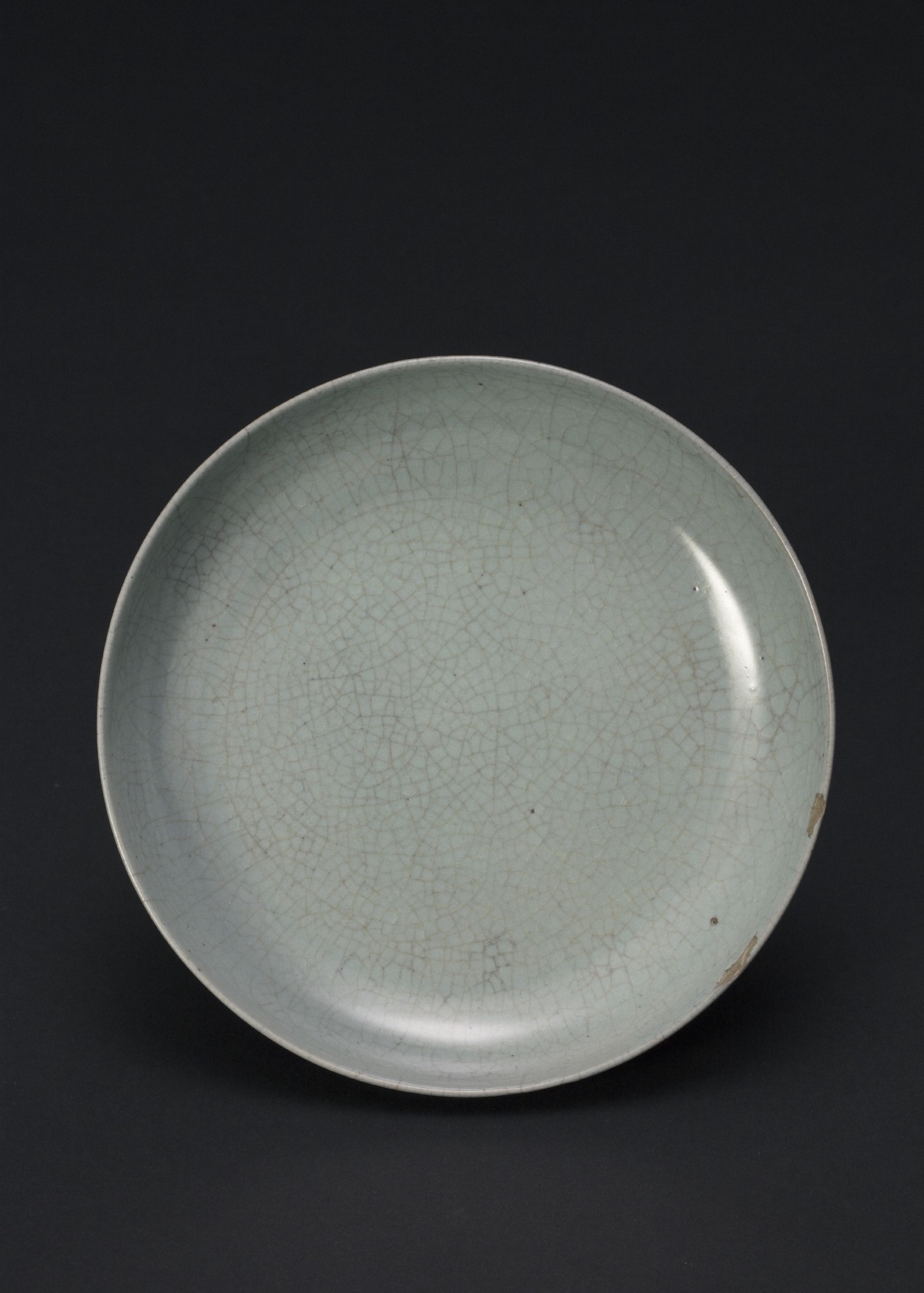
Northern Song Dynasty Ru kiln celadon plate, diameter 15.7 cm, height 3.7 cm
The description of home life porcelain in "A Dream of Red Mansions" mentions the famous kilns of the Song Dynasty, such as Ru kiln and Ding kiln, and also mentions the official kilns of the Ming Dynasty, such as Xuan kiln and Cheng kiln, which decorated the daily life of Jia Mansion and Grand View Garden. Cao Xueqin wraps this daily life in exquisite antique porcelain and contemporary porcelain that imitates the Qing Dynasty. Ru kiln, "the morning star is so precious", appears several times in the book, with plates, beauty goblets and flower pouches; Ding kiln, "the color is white in the world", Baoyu's birthday banquet, forty Ding kiln dishes were used to serve wine Food and vegetables. Understated luxury, impressive.
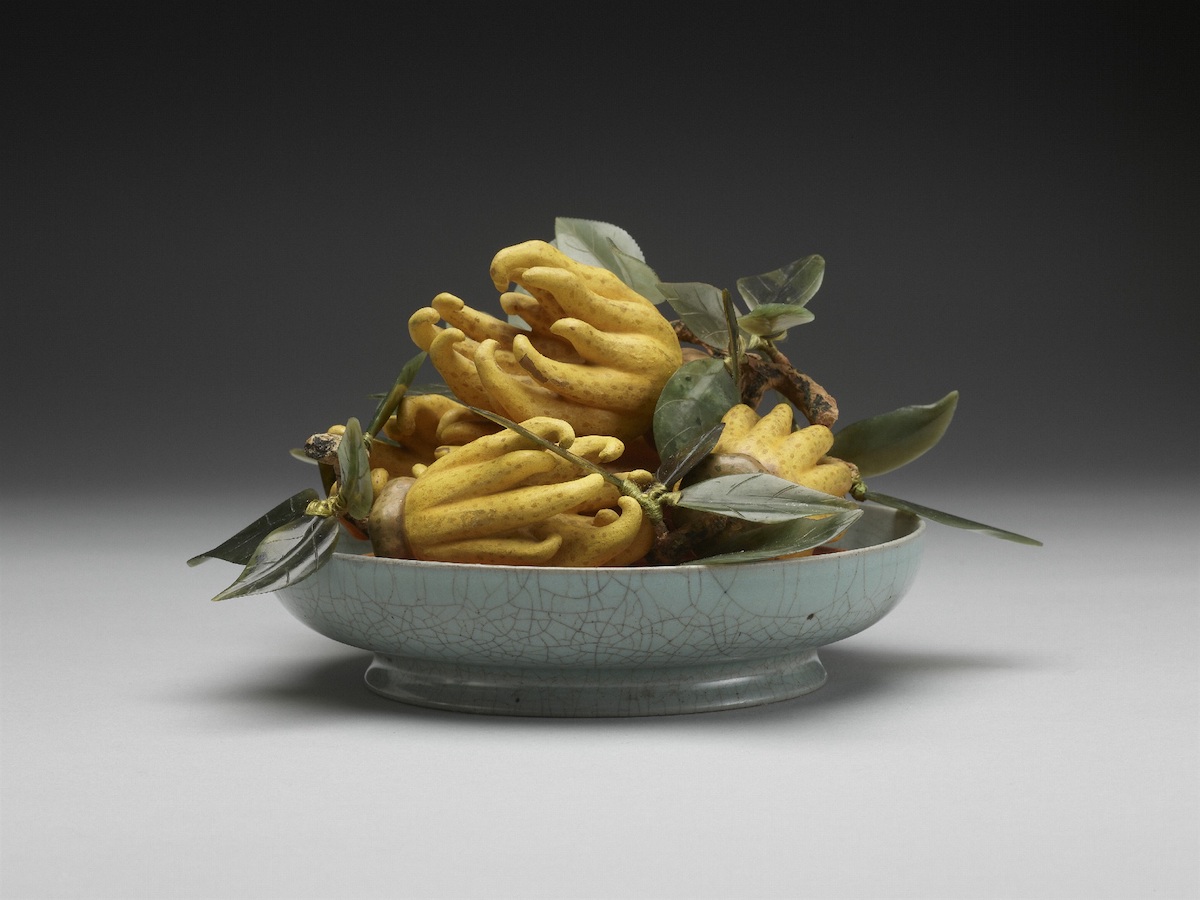
"A Dream of Red Mansions" has many seemingly inconspicuous details, such as the "big plate from Daguan Kiln" placed on the red sandalwood shelf in the spring room. This is the only time in the novel that "Daguan Kiln" is referred to as "Ru Kiln". It implies that after Tanchun took power and managed the family, he understood the law, observed etiquette, and eliminated disadvantages. He was the only Jinchai with the "grand view spirit". The "big plate of Daguan Kiln" contains "the delicate yellow and exquisite Buddha's hand". Buddha's hand is a fruit that the Qing palace loved to decorate for its fragrance. It is also a symbol of compassion in the book. Ban'er, the grandson of the old woman Liu, and Jia Qiao, the youngest golden hairpin, were playing and passing Buddha's hand around in the sex room, implying that grandma would save Qiao after her house was ransacked and she was displaced.
Foreign objects and exotic goods
"A Dream of Red Mansions" was written in the eighteenth century when cultural exchanges between China and the West and global trade were increasingly flourishing. At that time, Western missionaries arrived in China one after another, bringing many imported goods from other places, commonly known as "foreign goods", such as boxes containing snuff, transparent glass vials, pocket watches worn on the body, etc. It became a popular novelty in the court. The diffusion effect produced by this not only affected the Cao family, which was closely related to the court, but was also reflected in the Jia family written by Cao Xueqin. In addition, lacquerware from Japan is also described with the word "foreign" in the book - "foreign lacquer", which together decorate the Jia family's fashion taste.
Vendulina - Venus Glass
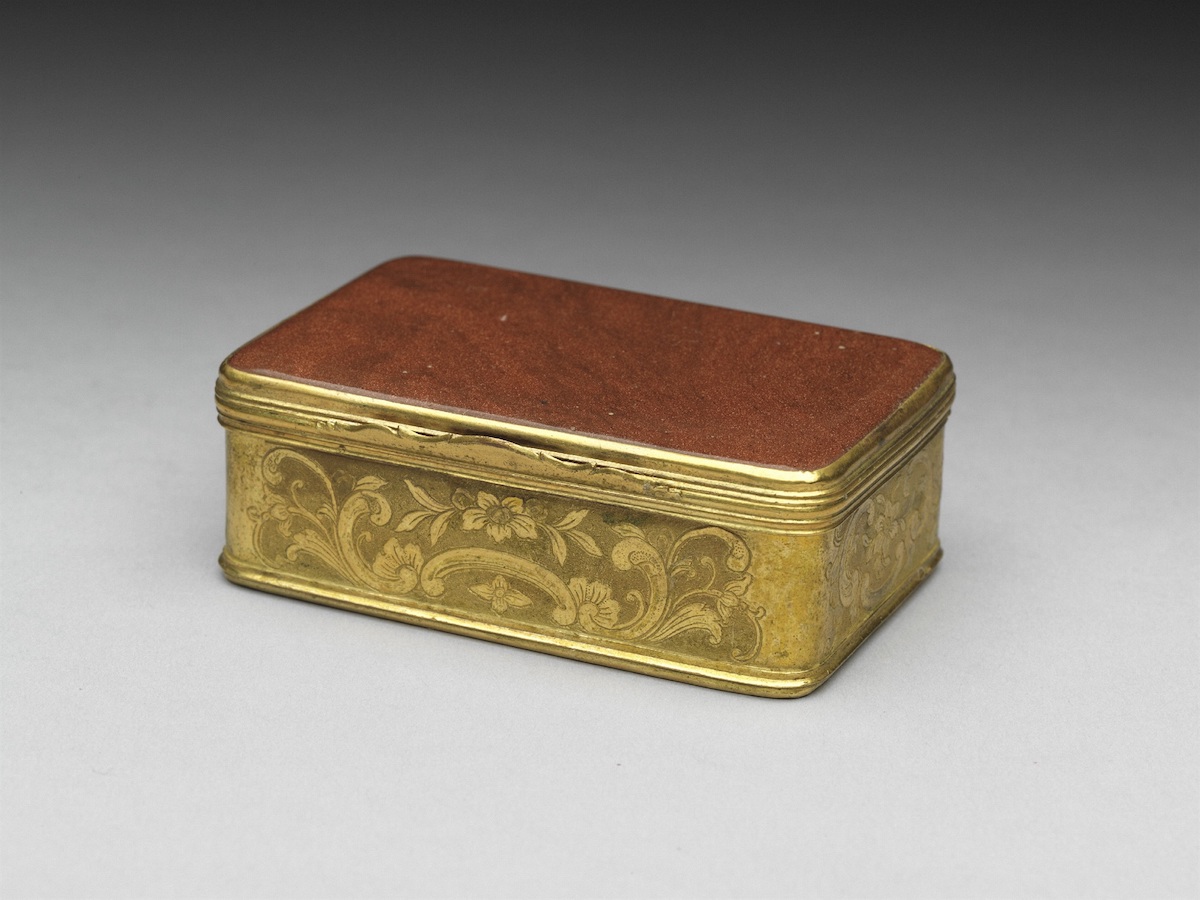
European 18th century copper and gold star glass snuff box, 8.2 cm long and 2.8 cm high
Venturina, transliterated from the French word "venturine", originally meant "brown-yellow gem containing Venus". Extended to "artificial Wendulina, imitation of glass or pottery made of this gemstone". Looking through the "Working Documents" of the Qianlong Dynasty, we can see that "Wendulina Stone" is "Venus Glass". Most of the artificially smelted glass covered with gold stars was imported from Europe, and a small amount was produced by the Qing palace glass workshops. Such products were rare at the time, so Cao Xueqin naturally wrote them into the novel, showing himself and even the wealth and fashion of the Jia family in the book.
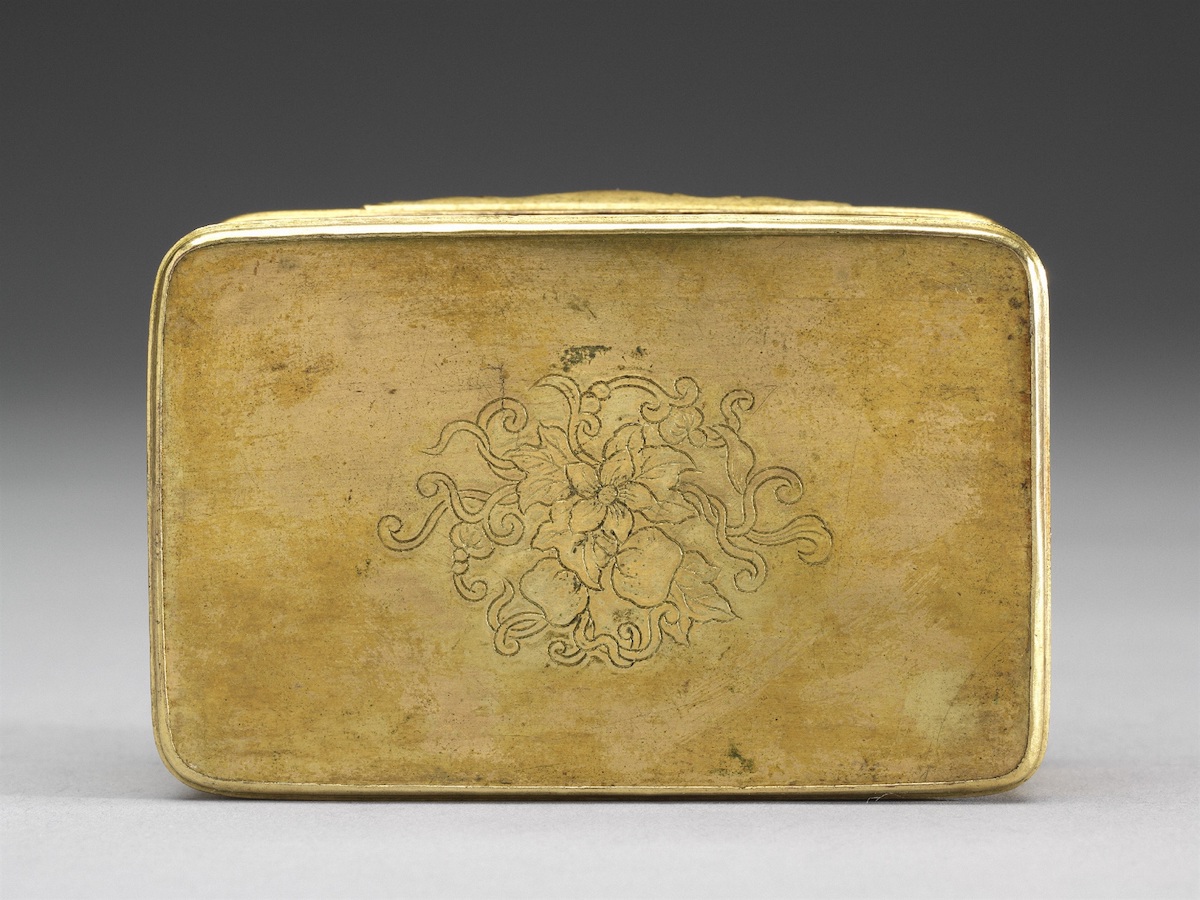
European 18th century copper and gold star glass snuff box, 8.2 cm long and 2.8 cm high
Qingwen, Baoyu's beloved maid. Chapter fifty-two, Qingwen fell ill with fever, headache, and severe nasal congestion. Baoyu specially ordered someone to take "a flat box inlaid with gold and double-buckle Venus glass" and let him smell the "Wangqia foreign smoke" in the box, which is snuff. Snuff is precious and easy to get out of breath due to moisture, so it is often packaged in tightly sealed boxes, bottles, etc. When Qingwen picked some snuff with her fingernails and sniffed it into her nose, "Suddenly she felt a sour and spicy taste penetrate into her fontanelle, and she sneezed five or six times in succession, and her tears and runny nose immediately flowed out." The effect of using snuff to relieve sneezing is , described very vividly.
Own timepieces - pocket watches and clocks
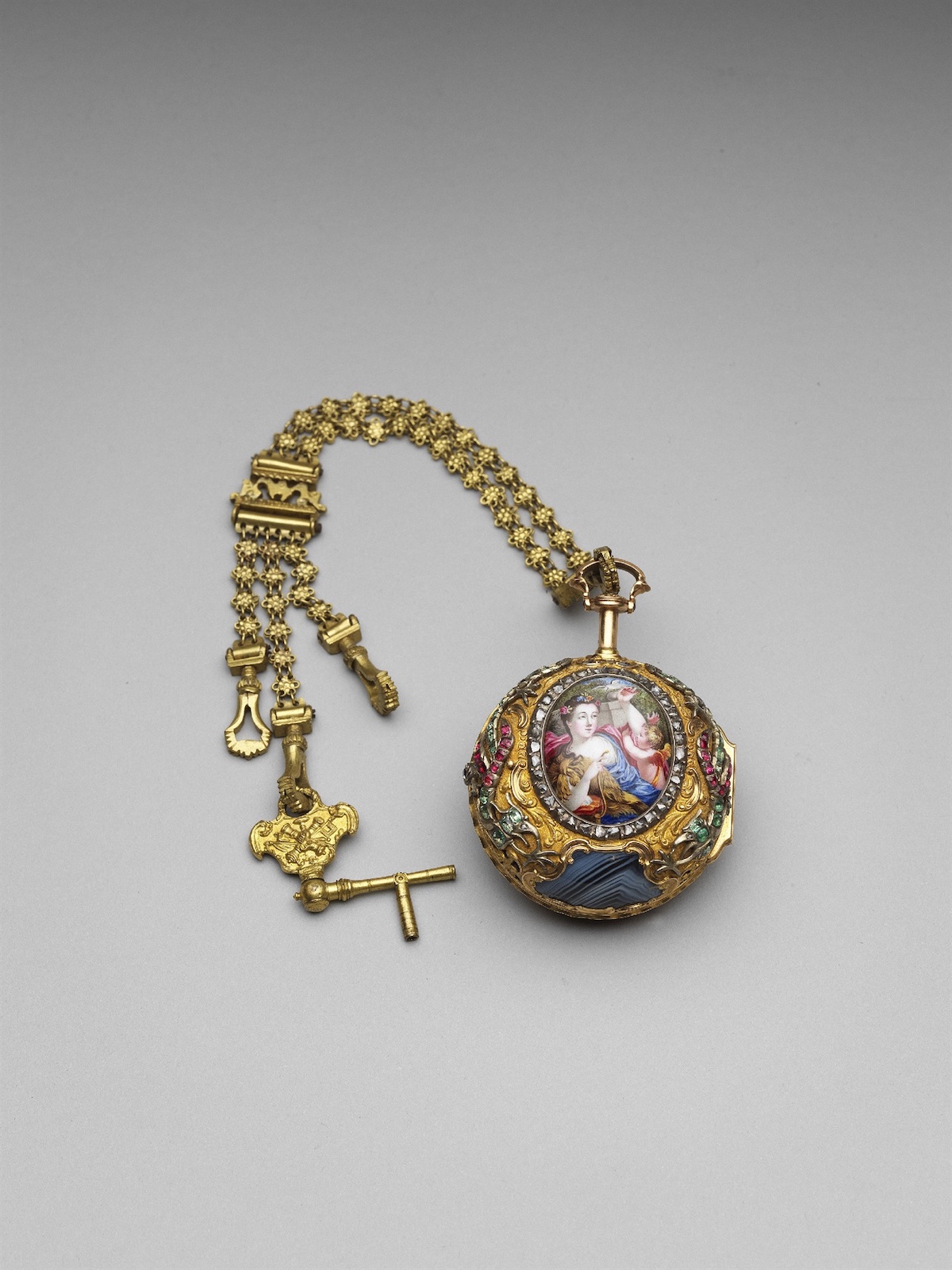
European 18th century painted enamel inlaid jewelry Western character pocket watch, diameter 4.5 cm
The pocket watch allows the illusory time to appear concretely and allows the flowing time to be worn on the body. Clocks symbolize the achievements of European science and metallurgical technology, as well as the identity of the user. When pocket watches and clocks followed the footsteps of missionaries and envoys, they set foot in China and entered the palace, becoming favorites of emperors, nobles, etc., which not only led to the birth of the "clock making office" of the Qing Palace Building Office, but also affected the palace. Fashion trends inside and outside the palace. As this trend spread, even those who followed Wang Xifeng "had their own clocks" with them, and Baoyu had "a gold watch the size of a walnut" in his arms.
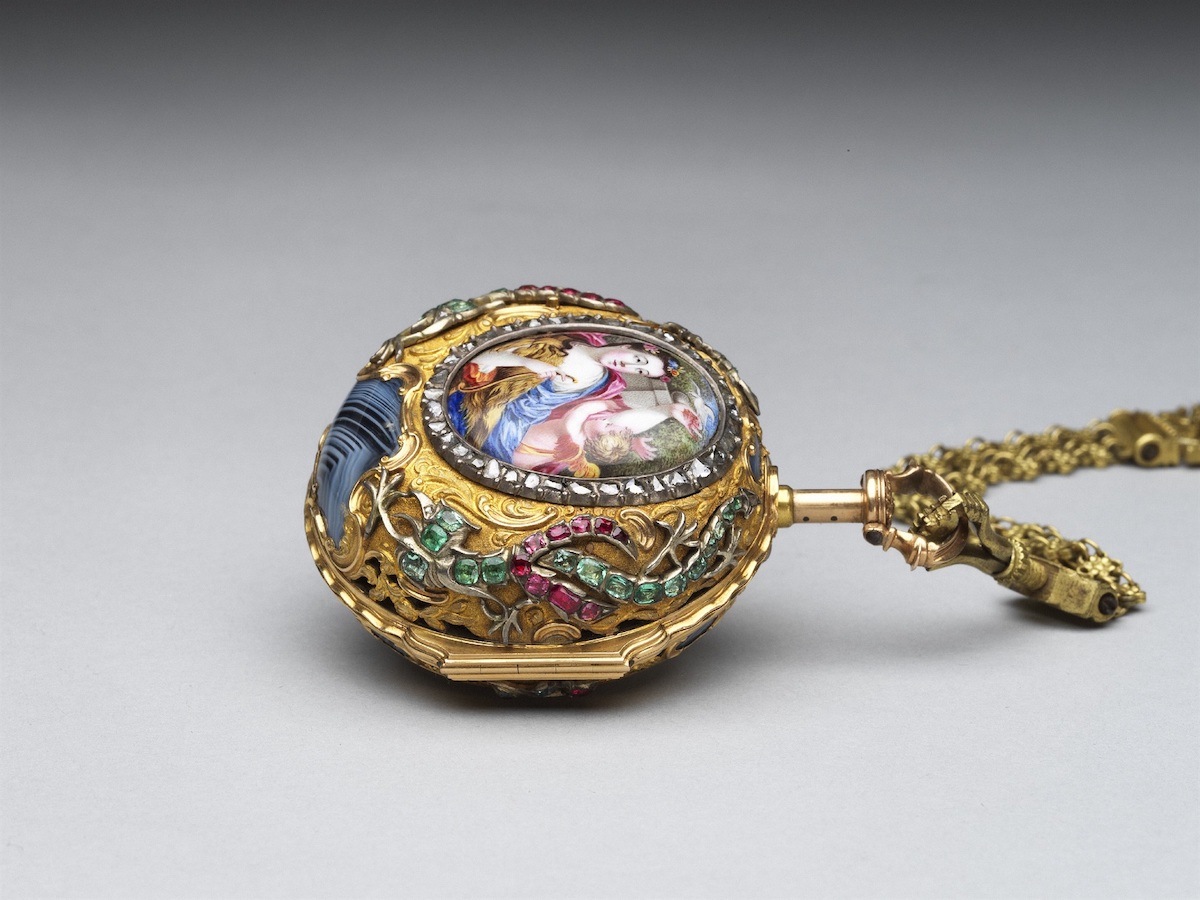
European 18th century painted enamel inlaid jewelry Western character pocket watch, diameter 4.5 cm
The pocket watch is a fascinating stage. Under the stage, there are extremely exquisitely designed gears; on the stage, there are slender hour and minute hands. The entire stage is surrounded by dazzling gems, agate and painted enamel pieces. The gorgeous painted enamel depicts the moment when the goddess Venus takes away the golden bow of Cupid, the god of love. To the Qing people, the characters on the pocket watches seemed absurd because they had never heard of Greek mythology. Perhaps because they don’t understand it, it actually increases people’s curiosity and interest in such items.
Western paint - Japanese maki-e
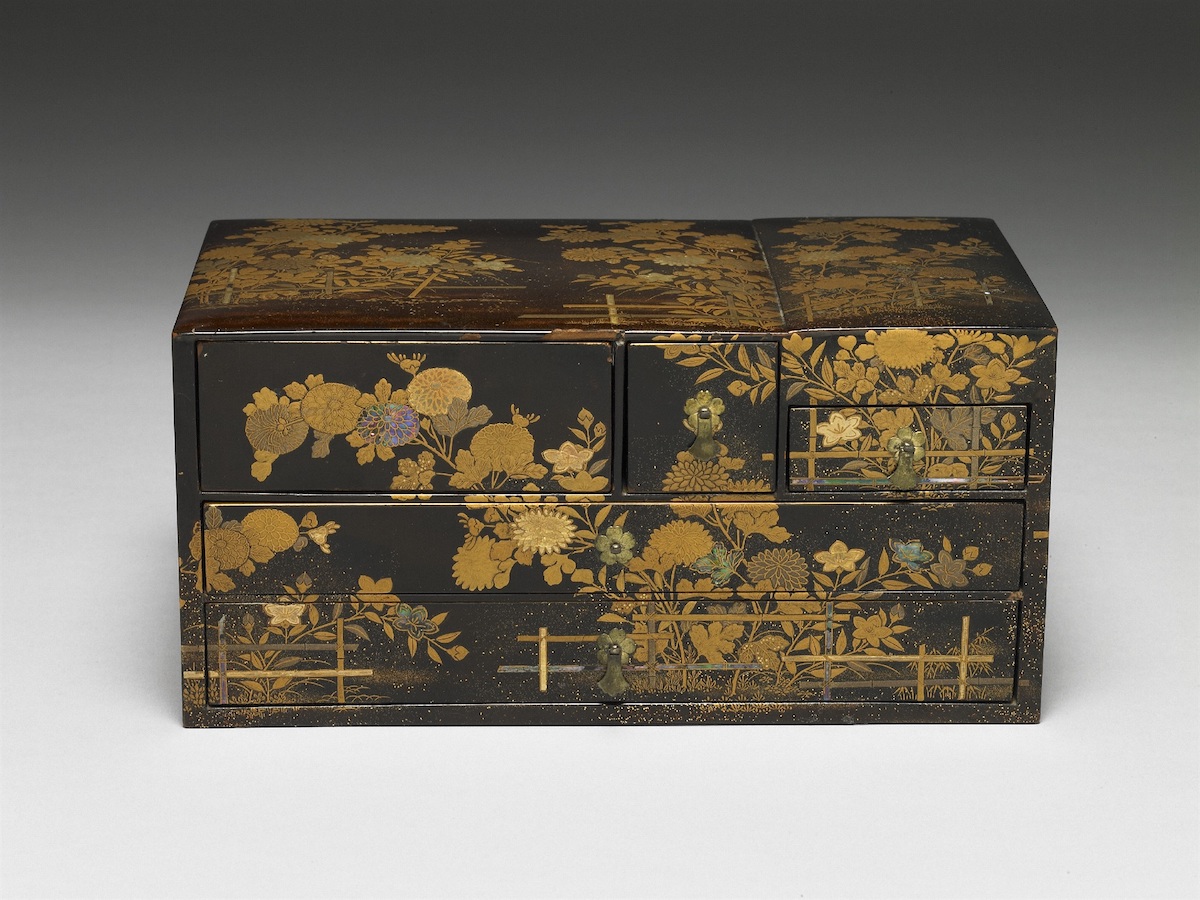
Japanese 18th century maki-e mother-of-pearl three-layer drawer box, 22 cm long and 10.7 cm high
Western lacquer refers to the lacquerware sold by Japan to the Qing Dynasty, which is now known as "Maki-e". Western paint is usually painted layer by layer with black paint or single-color paint, and then decorated with techniques such as gold tracing, mud gold or gold sprinkling. The foreign paint mentioned in "A Dream of Red Mansions" includes "plum blossom style foreign paint small table, foreign paint stand, foreign paint tea tray", etc. On the table are stove bottle boxes, Ru kiln beauty goblets, and white jade chimes hanging on the shelves. There are teacups on the plate. The low-key black sets off the golden wealth, and this wealth presents the supported and stored items in the most exquisite and beautiful way.
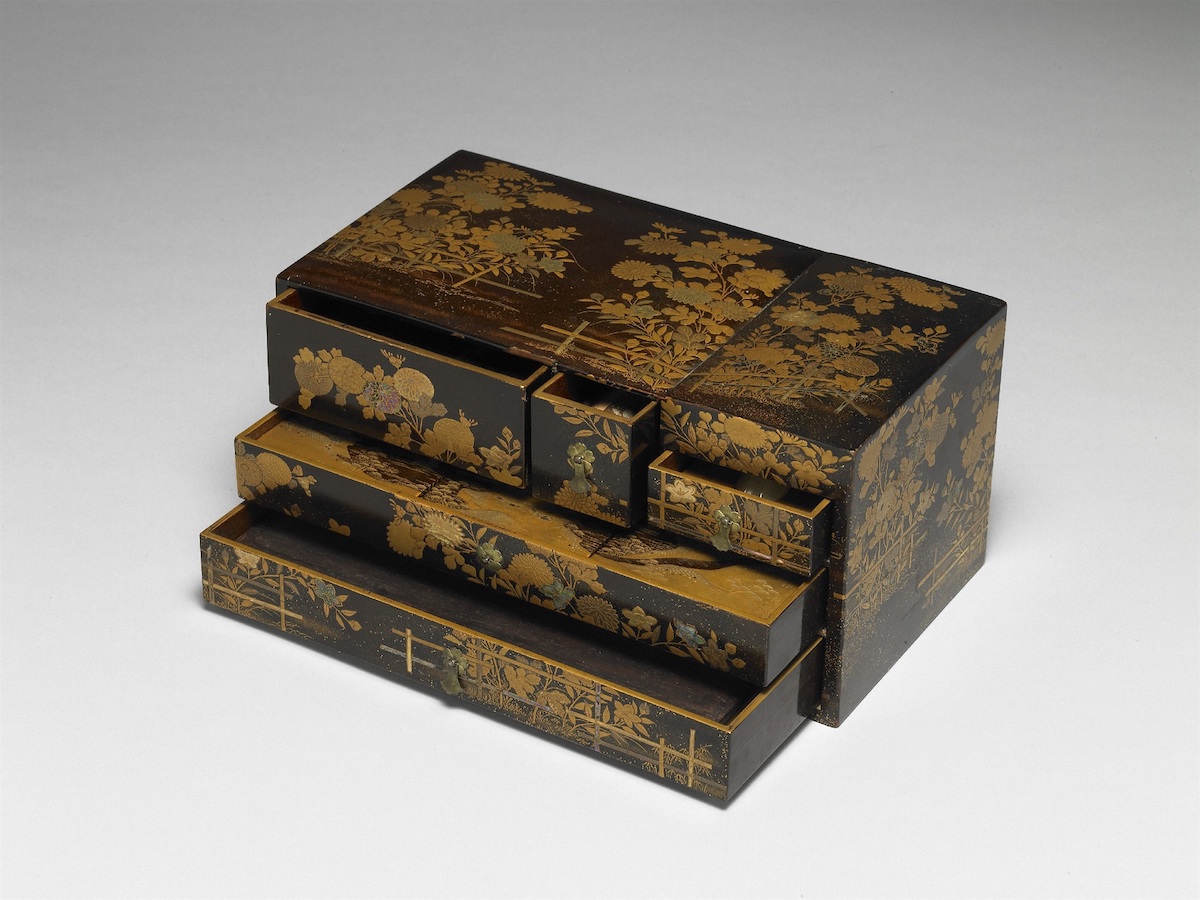
Japanese 18th century maki-e mother-of-pearl three-layer drawer box, 22 cm long and 10.7 cm high
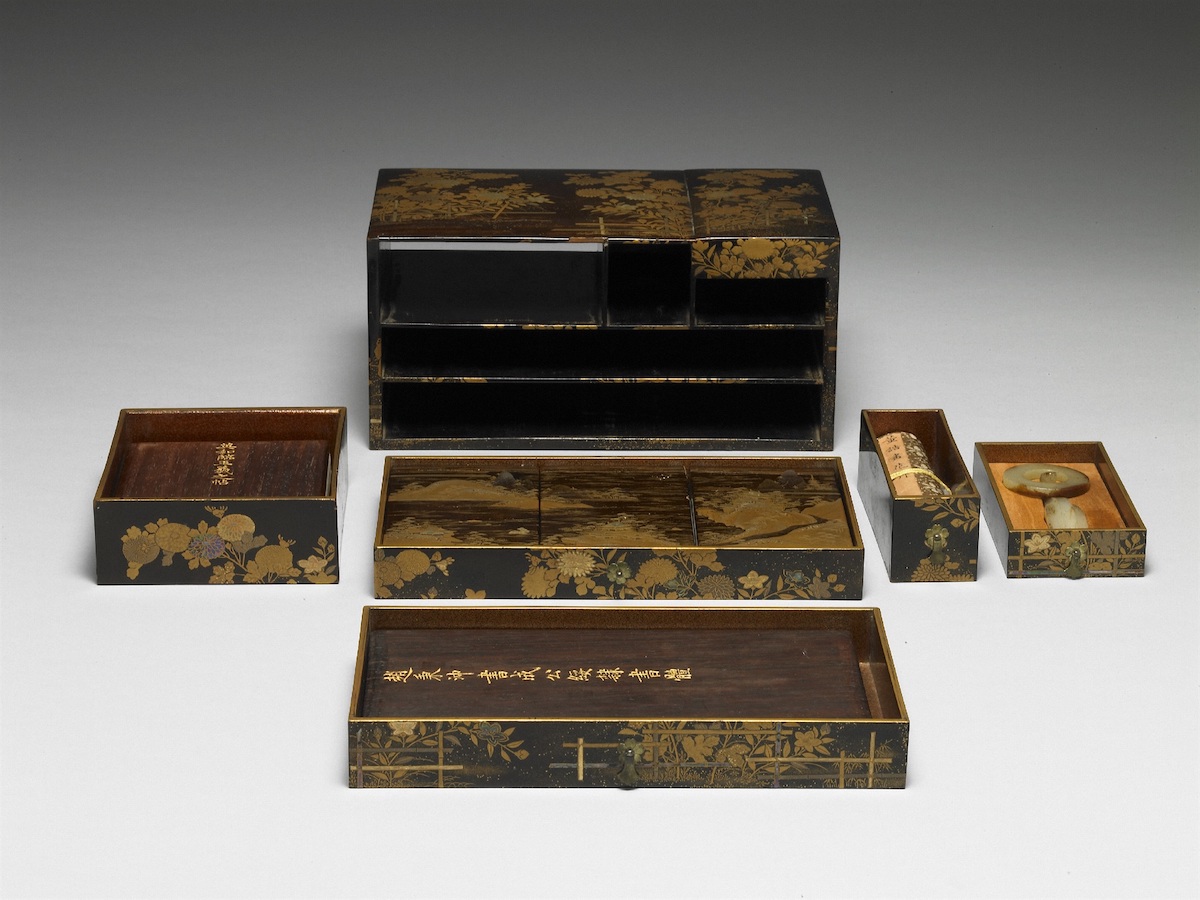
Japanese 18th century maki-e mother-of-pearl three-layer drawer box, 22 cm long and 10.7 cm high
Maki-e lacquerware was favored by literati from the south of the Yangtze River in the late Ming Dynasty because of its elegance, elegance, and lightness like paper. This in turn influenced its use by the courts, nobles, and even literati in the Qing Dynasty. In addition to being decorated with maki-e, lacquerware is sometimes also embellished with mother-of-pearl. The chrysanthemums, leaves and hedges spread across the surface of the box, some of which shine with the silver-purple light of shells.
a dream
"When a lie becomes true, the truth is also false" is an impressive sentence in "A Dream of Red Mansions", which implies that everything in the book is both true and false. Through the illusory "unused stone that mends the sky", Cao Xueqin channels spirits down to earth, leading us to see the prosperity and decline in the real world, the beauty and sadness of female life, and different forms of tragedy. In order to color the novel's pictures, the author specially used many concrete objects, such as purses, jewelry, Buddha's hands, etc., to outline the outlines and temperaments of the characters, and even serve as symbols to connect the plot of the story. Therefore, "objects" are everywhere in the book, connecting novel creation with real life.
Return Tears - Jia Baoyu and Lin Daiyu
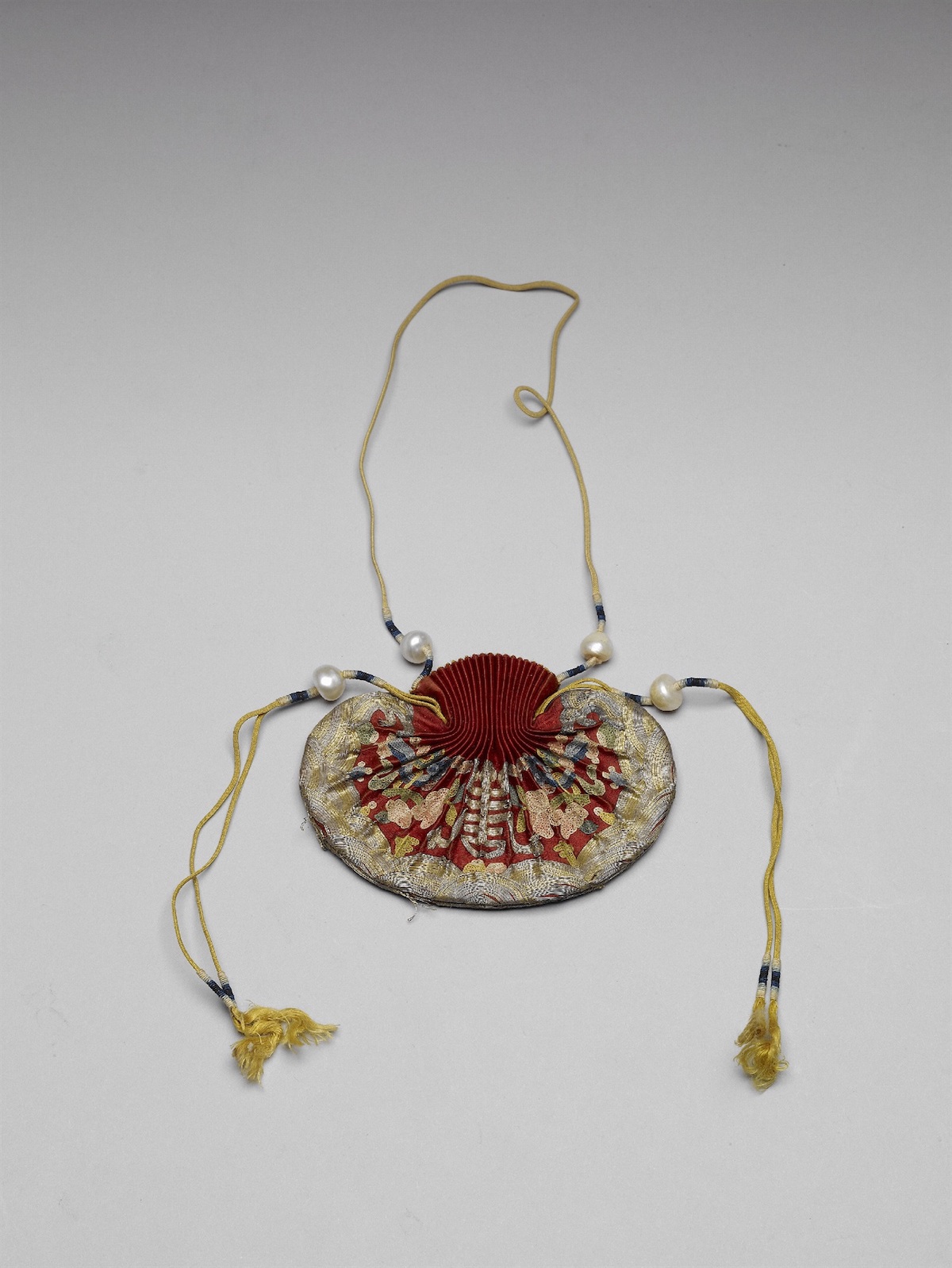
Purple red forged gold and silver thread embroidered purse, 10.8 cm long
"A Dream of Red Mansions" is a story about returning tears. It is a story about an unused stone that Nuwa used to mend the sky, and watered a fairy grass beside the Sansheng Stone in Linghe River to make it last for a long time. It's a story about a stone that transformed into the world, and the fairy grass went there together, and "returned all the tears in my life to him." The compassion and repayment of kindness in the previous life became the reason for Baoyu and Daiyu's "close friendship" when they were children in this life, and even the basis for their "confidant love" when they grew up. "We sit together during the day, and we breathe together and stop together at night." We read together, bury flowers together, and write poems together until "those who owe tears have run out of tears."
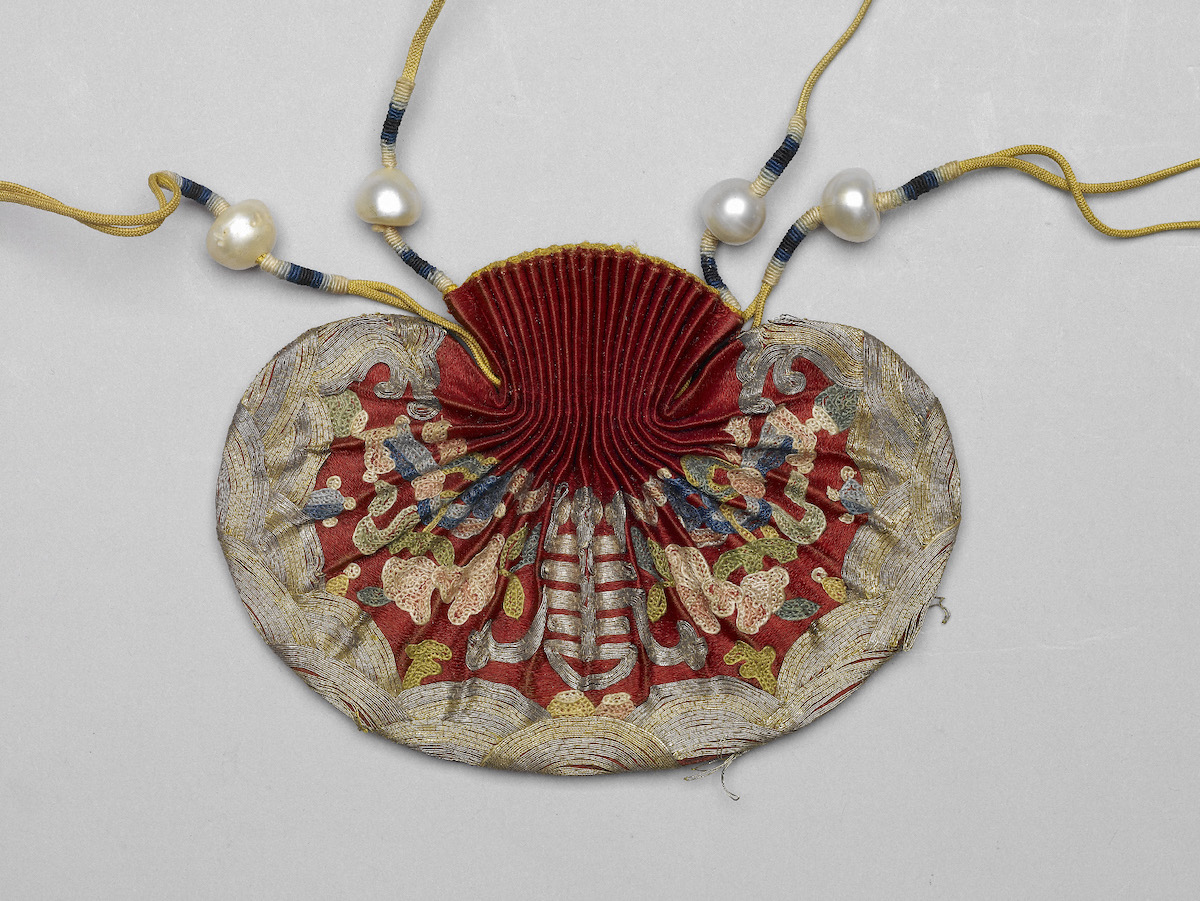
Purple red forged gold and silver thread embroidered purse, 10.8 cm long
Purse, a small bag that Manchus wear with them. When used by men, hang them on both sides of the belt and use them in pairs. Daiyu once made a purse for Baoyu with her own hands. Once, she mistakenly thought that the purse was given to someone else and went back to her room angrily. In fact, Baoyu was afraid that someone would take away his purse, so he kept it on his clothes. So cherished, so close to myself. "Tears a little, panting slightly." is Baoyu's description when he first met Daiyu. Born in the Lin family, which has been held for generations, she is Jia Mu's beloved granddaughter. The spiritual energy is refined, but he is always sick and crying. She was weak and had little needlework. "She spent a whole year making a sachet in the past year." This further highlights the value of sewing a purse for Baoyu.
The crystal clear snow in the mountain - Xue Baochai
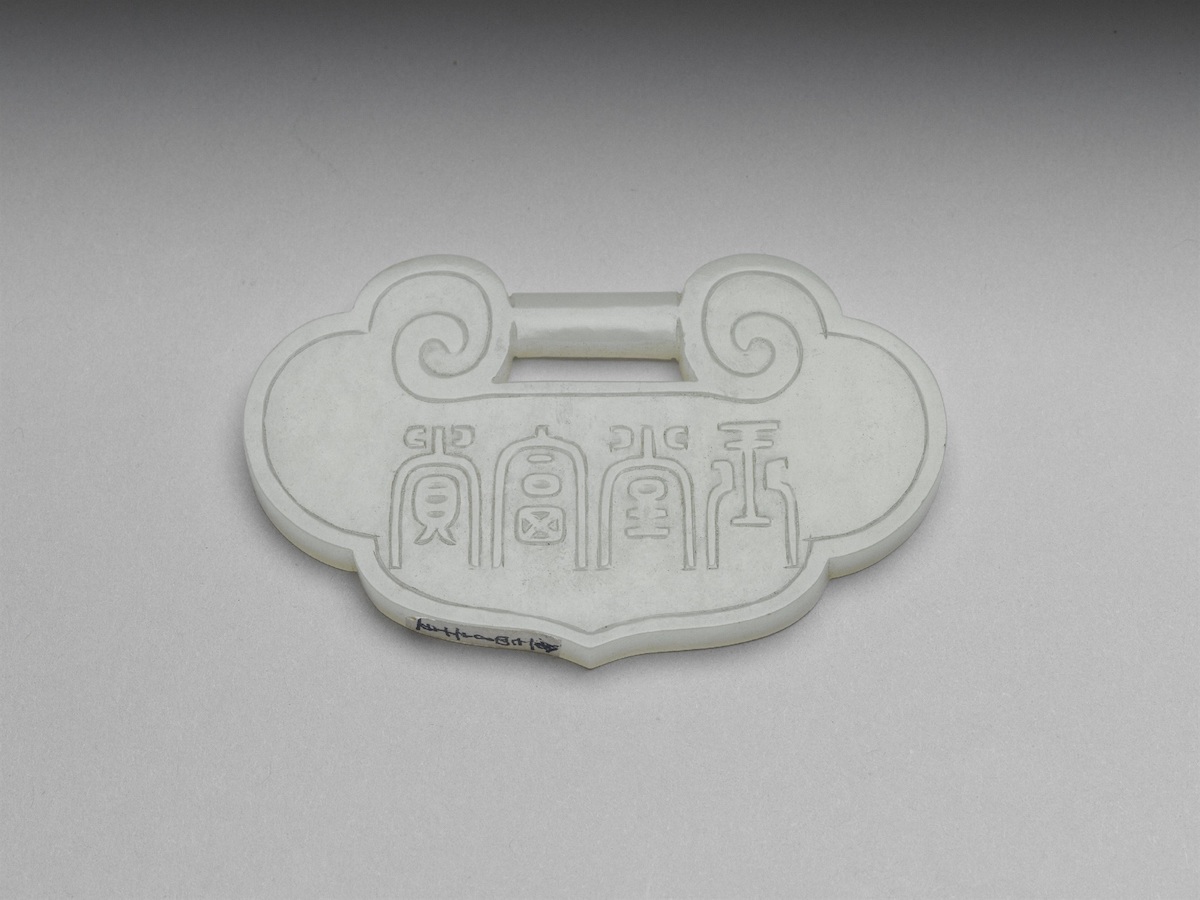
Clear jade lock-shaped pendant, 8.2 cm long and 4.6 cm wide
Baochai always wears a gold lock on her body, with the words "Never leave, never give up, live forever" engraved on her body. Paired with the psychic jade's "Don't lose, don't forget, immortality and longevity", it makes people think of "a good marriage with gold and jade". She was born into an imperial merchant family and was educated and literate since she was a child. She was the most learned among Jin Chai. Noble character, elegant and quiet. Cao Xueqin said that she dressed simply and "never liked these flowers and pinks." The decorations in the house are like "a snow cave, with no playthings at all." All imply Baochai's elegant taste and integrity, as well as his pursuit of returning to the ordinary nature of life.
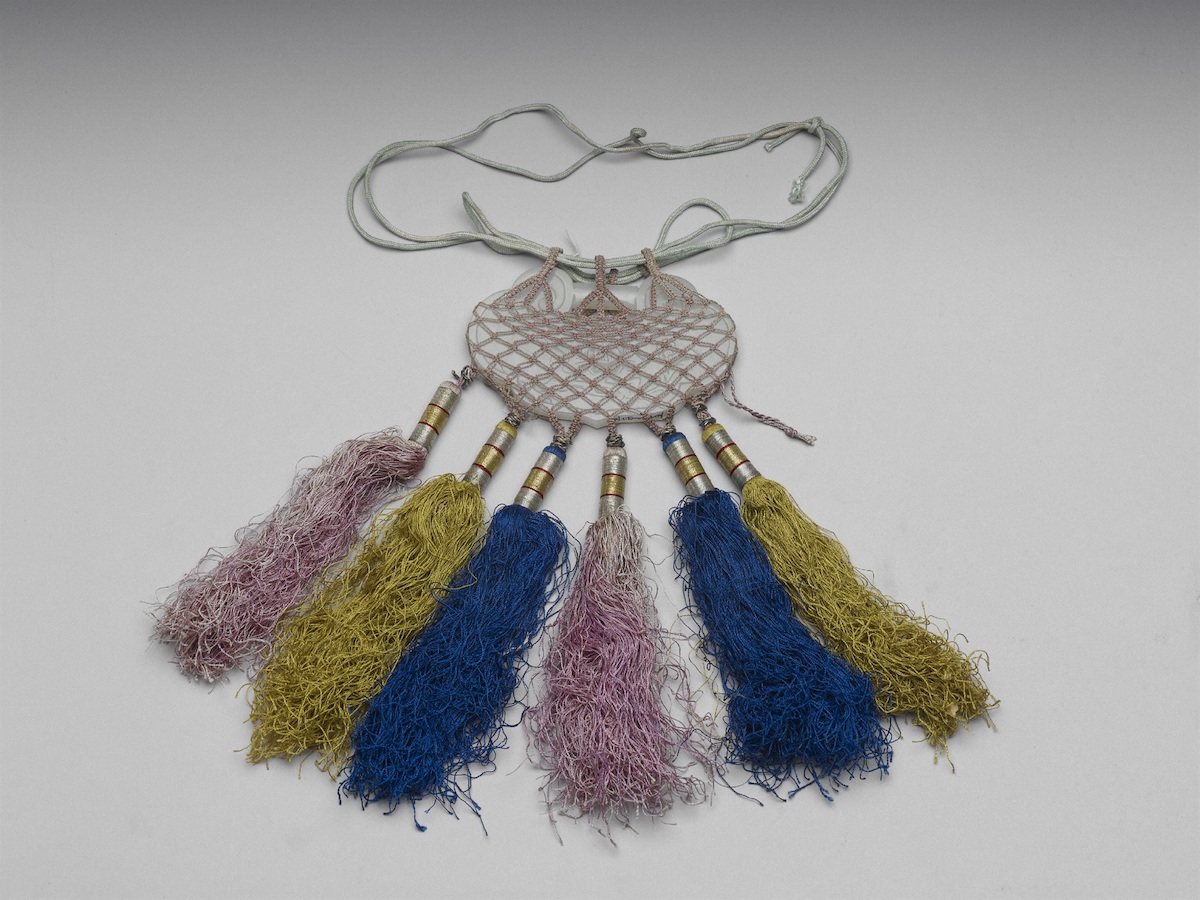
Clear jade lock-shaped pendant, 8.2 cm long and 4.6 cm wide
"Never leave, and your beauty will last forever." Two auspicious prophecies were given to Baochai by a monk, saying that they should be chiseled on gold vessels, one on the front and one on the back. This type of work, which is in the shape of a lock and engraved with auspicious words, is not based on imagination. Such a jade pendant has a lock-shaped appearance, with a peony on one side and a "yutang of wealth" on the other. With Luo Zi Luo, it can be worn everywhere.
The agencies are too clever in their calculations——Wang Xifeng
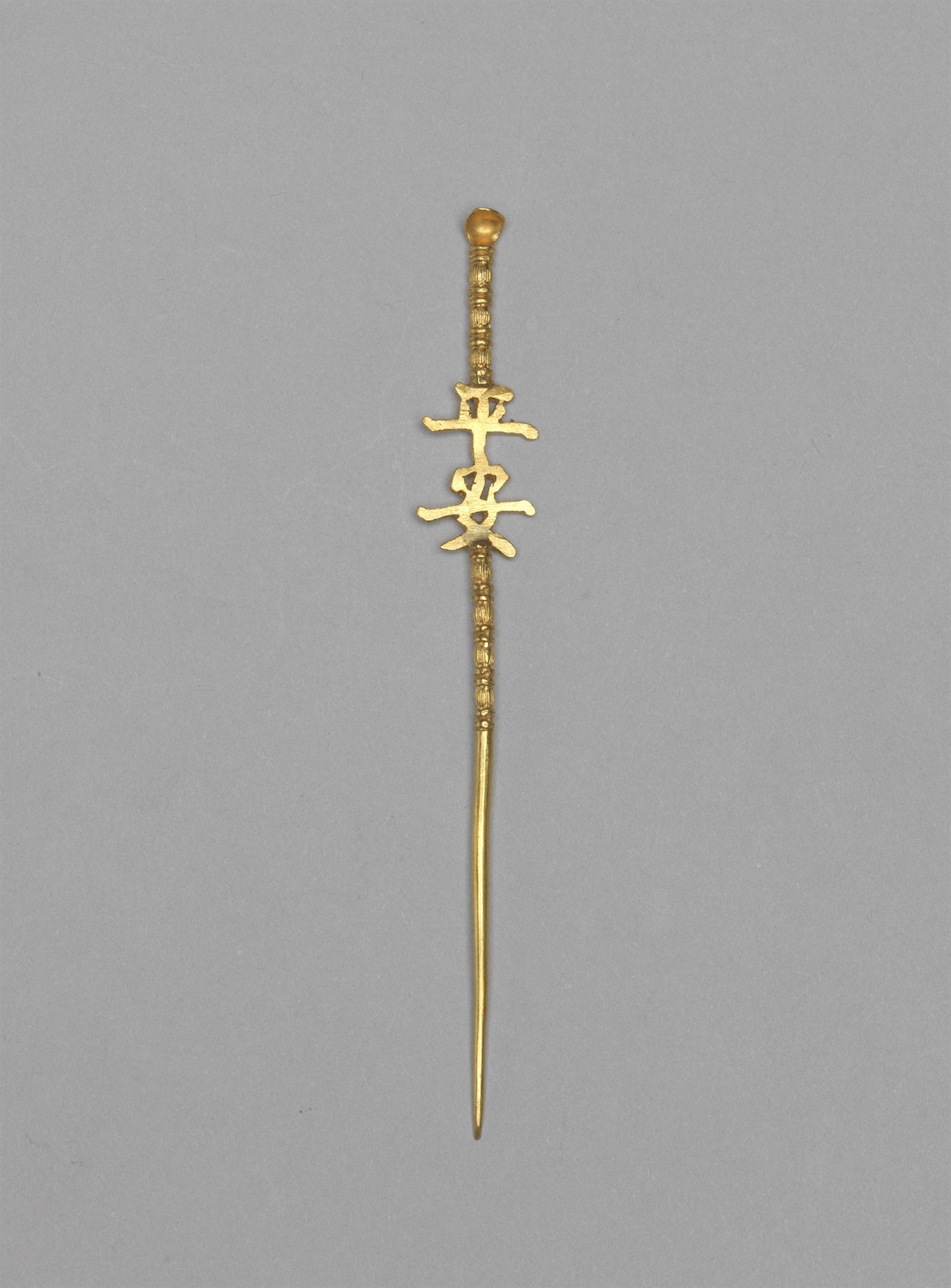
Qing Dynasty Jin Ping'an ear-dug hairpin 10.3 cm long
Wang Xifeng, the proud granddaughter-in-law of Jia Mu, is the head of the Jia family. Smart and capable, pungent and gorgeous, he always laughs when he appears, and he always looks glamorous. Born into an aristocratic family, the palace even prepared a southern tour to pick him up, which illustrates the relationship between the Wang family and the emperor, and that Sister Feng's life has been shining brightly since she was a child. Sister Feng manages the family and carefully calculates every expense to support the Jia family's huge expenditure, maintain the stability of Jia family's life, and slow down the decline of the Jia family. Despite all his efforts, he still couldn't save Jia's family, nor could he save himself from the tragedy of being abandoned.
Sister Feng's beauty is often a bit willful and indulgent. In the twenty-eighth chapter, Baoyu walked to Sister Feng's courtyard and saw "Sister Feng stepping on the threshold and picking her teeth with an ear pick..." Ear picks are often paired with hairpins. The golden Ping'an ear-dig hairpin is designed with a round concave end to form an ear-dig, and is decorated with the word "Ping'an".
Han Xiangyun sleeps drunkenly with peony fungus - Shi Xiangyun
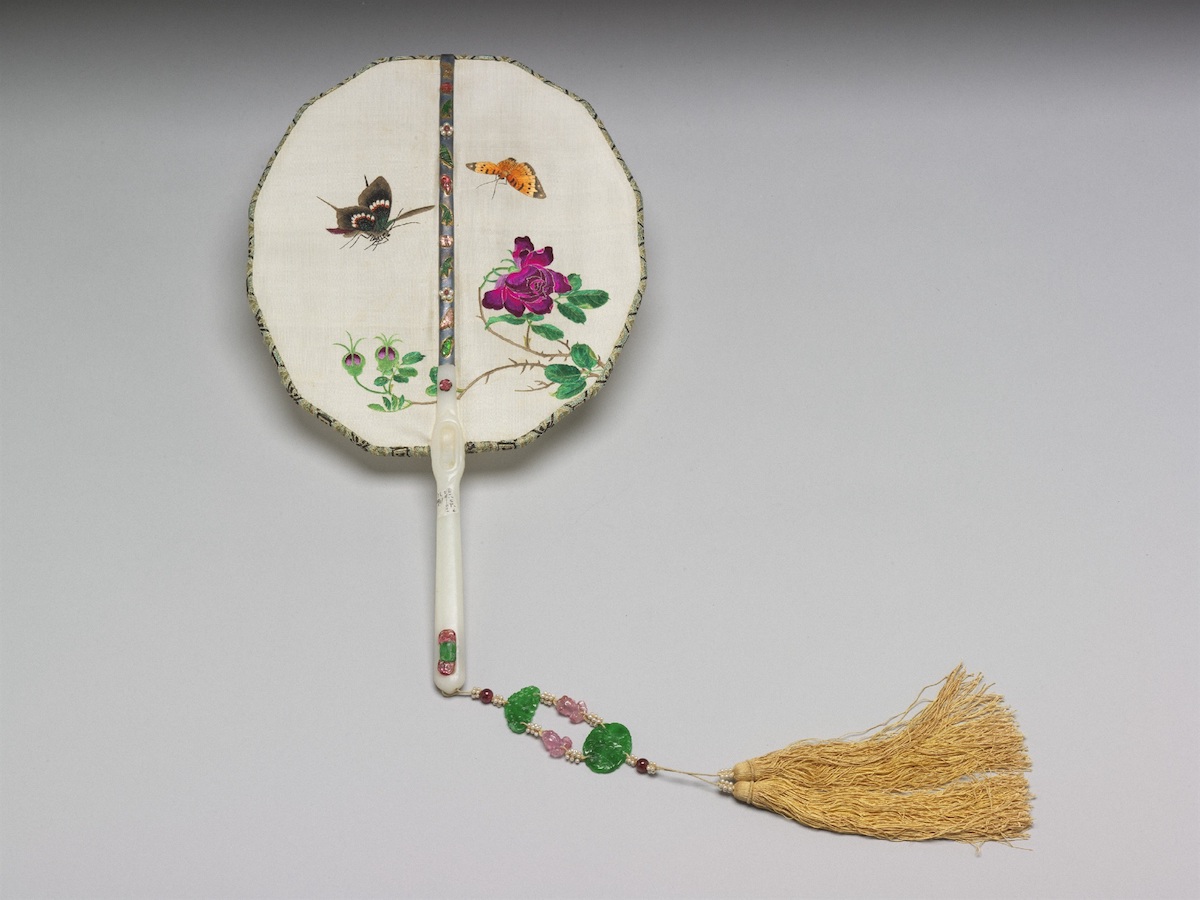
Pure white silk colorful embroidery inlaid with jewels and jade butterfly fan, 38.5 cm long and 21.5 cm wide
"A Dream of Red Mansions" mentions four major families - Jia, Shi, Wang, and Xue. Shi Xiangyun was born in the historian family, and Jia's mother - Shi Taijun - was the elder of his family. Xiangyun's parents died when he was young, but he has an open-minded and cheerful character. This is why the author specifically said that she was "blessed to be born heroic and magnanimous." She is the most positive character among Jin Chai. Xiangyun would talk and laugh loudly, eat venison, dress up as a man, get drunk and fall asleep on a stone bench. So bold and forthright. It's a pity that in the end, he still lived a lonely life.
Sleeping drunkenly in Xiangyun is a charming passage in the novel. "Peony flowers were flying all around, and the red fragrance was scattered all over his face and clothes. The fan in his hand was lying on the ground, half buried by the fallen flowers. A group of bees and butterflies were noisily surrounding him..." A round fan can bring coolness, and it can Covering the face can also be a prop in the palm of a woman's hand to show off her posture.
The young master has no chance to miss you - Xiren and Qingwen
Xiren and Qingwen are Baoyu's maids, Baoyu's aunt-to-be, and Jin Chai who was born a slave but was able to be registered. Xiren is simple, virtuous, and considerate in every aspect; Qingwen is pretty, arrogant, and competitive in everything. "Being lowly", they have different destinies because of their different personalities. Xiren married the actor Jiang Yuhan after the Jia's house was confiscated; Qingwen was wrongfully expelled before the Jia's house was confiscated and died of illness on a reed mat at home. An "enviable actor is blessed, but the young master is unlucky." The other "lives a long life due to slander, and the sentimental young master is in vain."
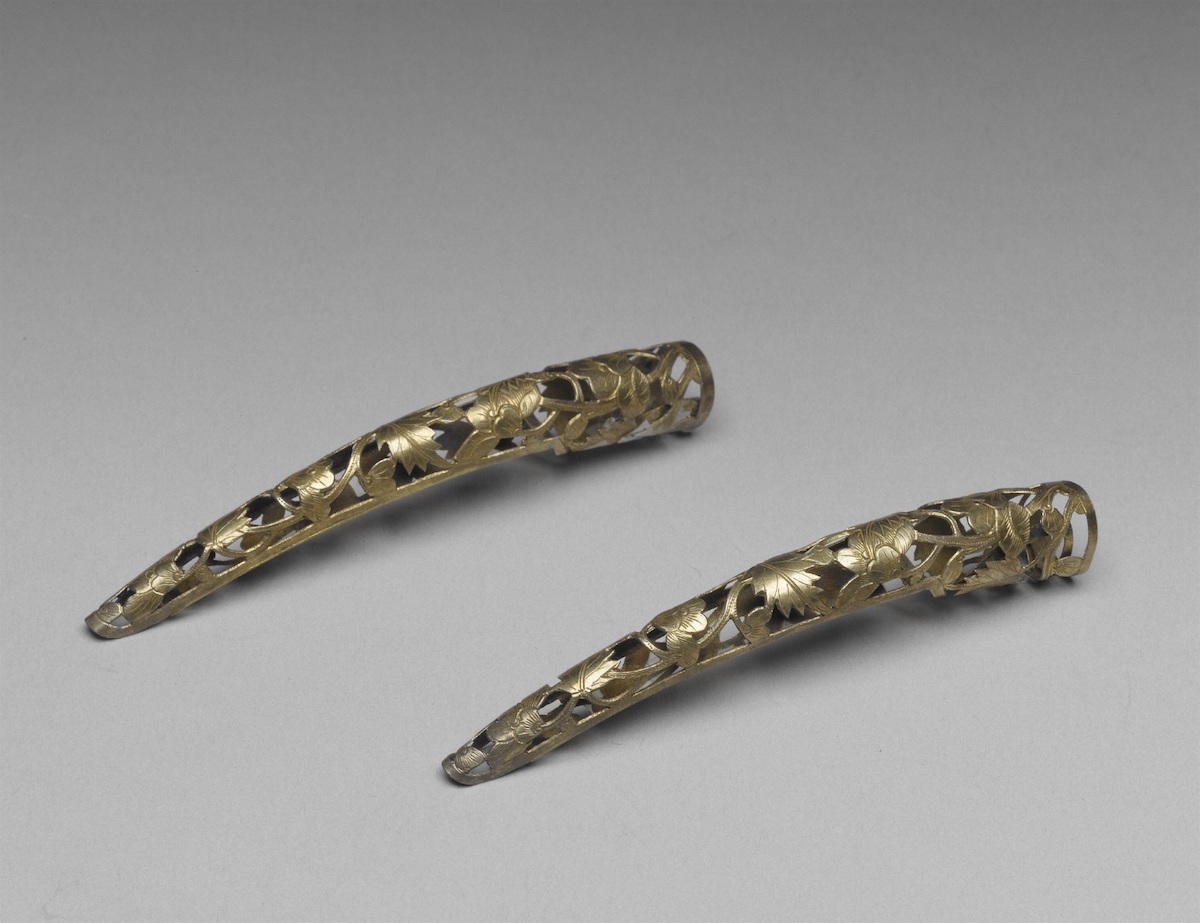
Clear silver gold-plated hollow hibiscus flower nail set, 8.2 cm long
Qingwen is delicate and charming. Under Baoyu's pampering, as a slave, she "dressed up like Xi Tzu every day." There are even "two nails on her hands, three inches long..." It can be seen that Qingwen loves to dress up and is pampered. Nail extensions are a symbol of aristocratic women and require careful care and protection with nail covers. Nails symbolize Qingwen's dignity and her life. He was mistakenly thought to be having an affair with Baoyu and was kicked out of Jia's house by Mrs. Wang. On the sickbed, in front of Baoyu, she cut off "two onion tube-like nails...take this, and you will be like seeing me from now on." wrote Qingwen's self-esteem and "heart higher than the sky" So strong.
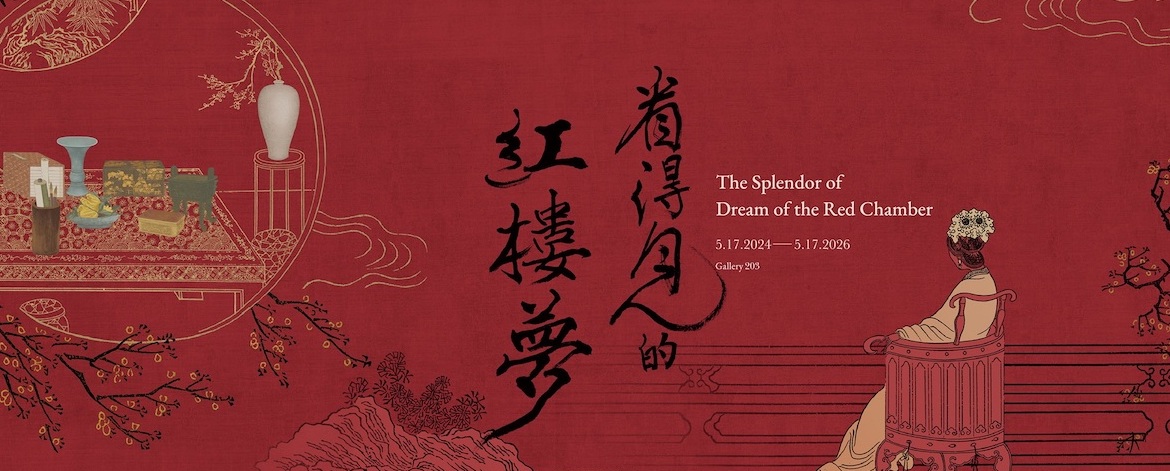
"Visible Dream of Red Mansions" exhibition poster
It is reported that this exhibition will last until May 17, 2026.
(The pictures and text in this article are compiled from data from the National Palace Museum in Taipei.)
